

Expeditions with rental expedition truck
Rental expedition truck.
‘How can we offer our customers the most amazing, adventurous and unique experience with the comfort of home?’ we asked ourselves. And so the Overland Travel x Bliss Mobil Expeditions were born. Our expeditions are a great opportunity to learn about overlanding and expedition trucks. Our rental expedition trucks (Mercedes-Benz Atego 1018 4x4 in combination with a 13 Foot High Bed Bliss Mobil unit) are for independent and self-sufficient travel and visiting remote areas. This way, everyone can experience adventures at the most beautiful destinations, without owning an expedition truck themselves.
With our Bliss Mobil rental expedition truck, you can take your luxury hotel room to the most remote and difficult places in the world. The expedition truck not only takes you from A to B, but thanks to the well-equipped unit and all the facilities, you can also stay anywhere in luxury. In the desert, at altitude, in the highlands of Iceland: no matter where you are, you can sleep comfortably, cook, shower, enjoy the sunset or warm your feet with the underfloor heating. This exceptional combination of luxury and adventure is true bucket list material.
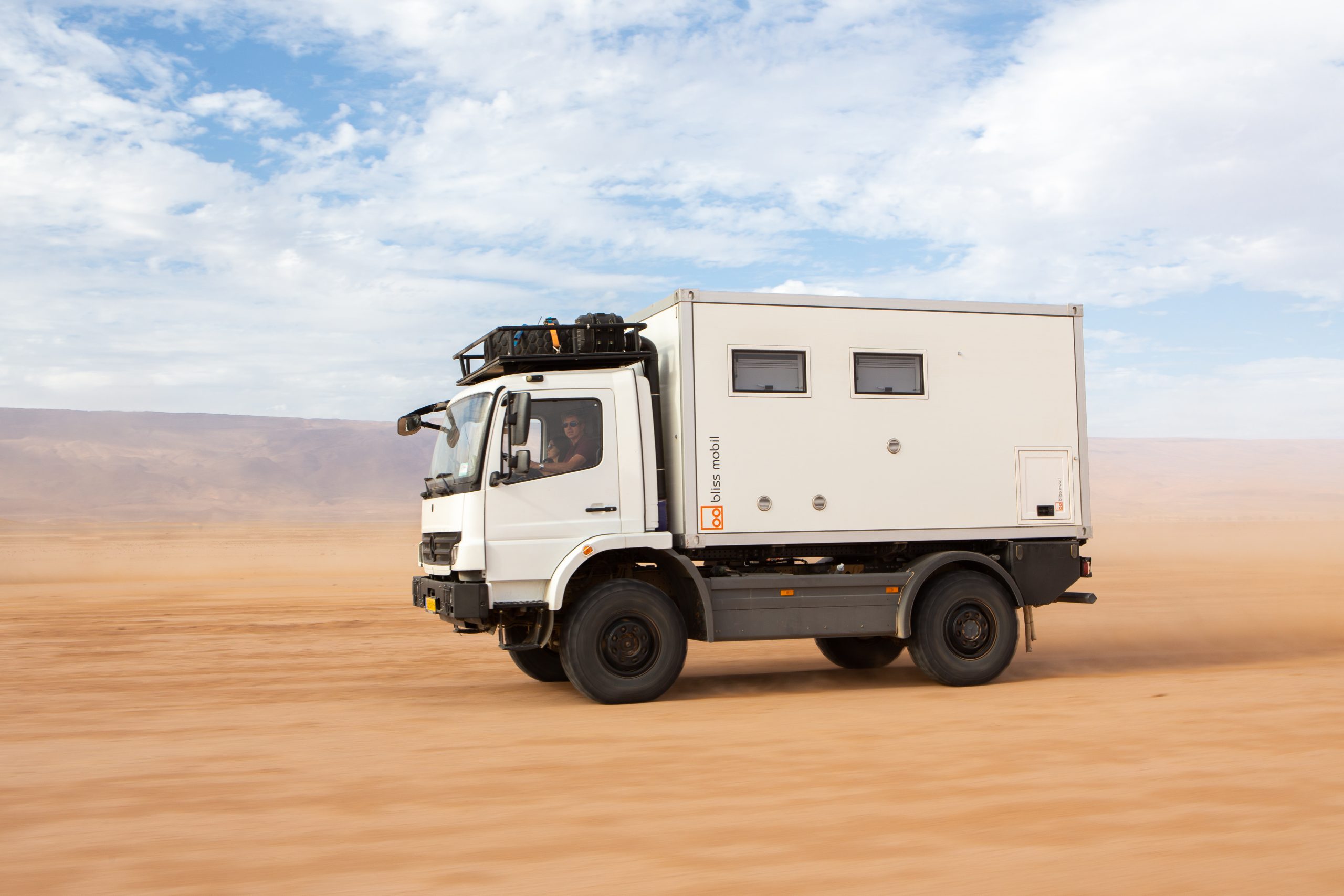
Turn your dream
Into a plan.
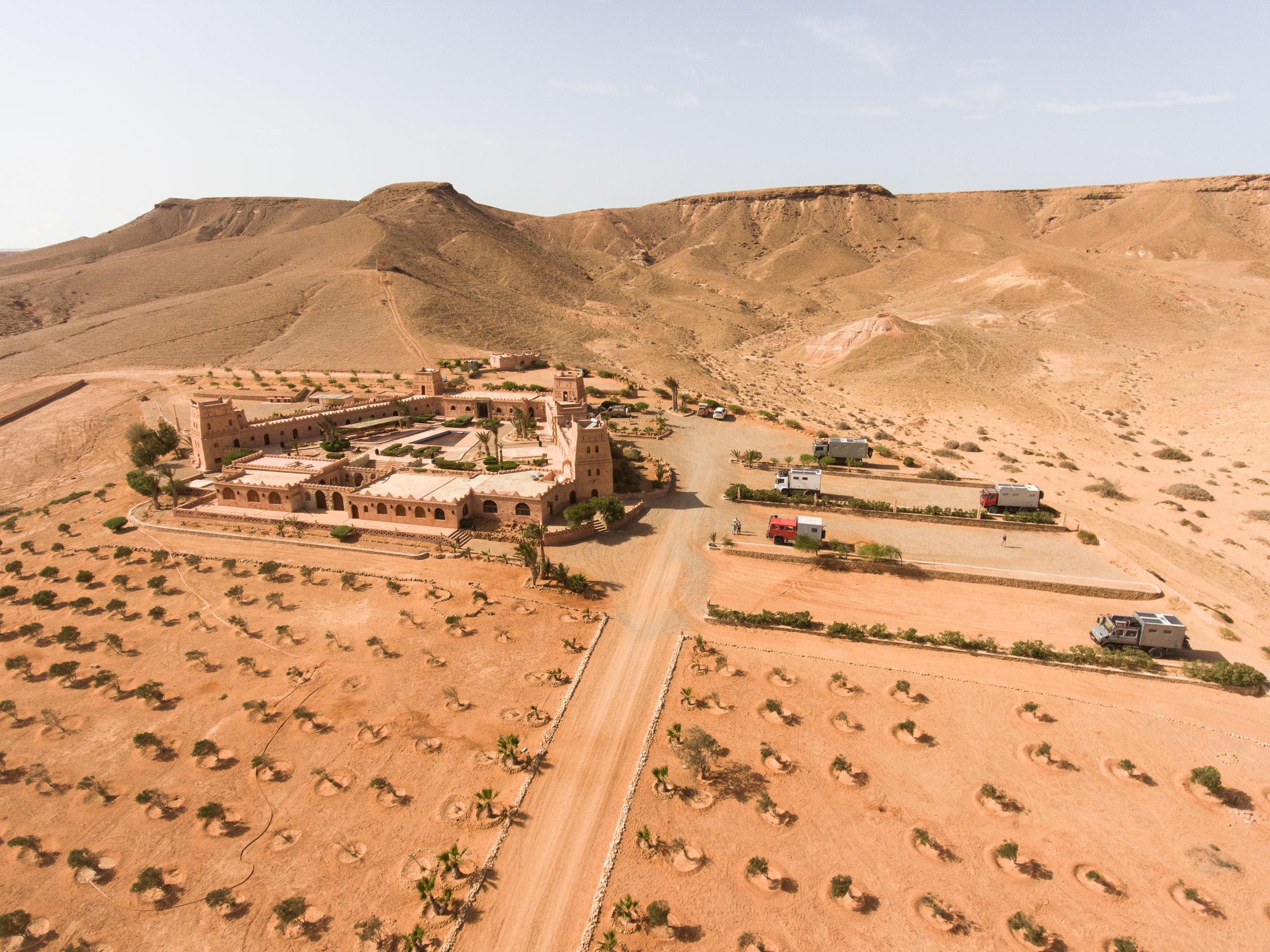
JOYS WITHOUT BURDENS
The rental expedition trucks are also very suitable if your truck is not on the continent where the expedition will take place or if your truck has not yet been delivered. Or for potential Bliss Mobil owners who do not (yet) have the time to make optimal use of their own unit. For our expeditions, we have thought and taken care of everything. It’s just a matter of packing your bag, flying to your destination and enjoying yourself.
Overland x Bliss Mobil expeditions with a rented expedition truck are also a perfect solution for those who want to sample the many benefits of the high-quality truck, unit and expeditions, without any commitment or logistical challenges. Scroll on for the current travel calendar.
NO EXPERIENCE REQUIRED
Travel, off-road or driving experience is not required, just the right driving license. We only expect you to be at the start location on time. We do of course provide training (regarding the unit, truck and off-road driving), you will receive an extensive roadbook and we start each day with a short briefing. This way you are well prepared, you go out safely and you get the most out of the experience.
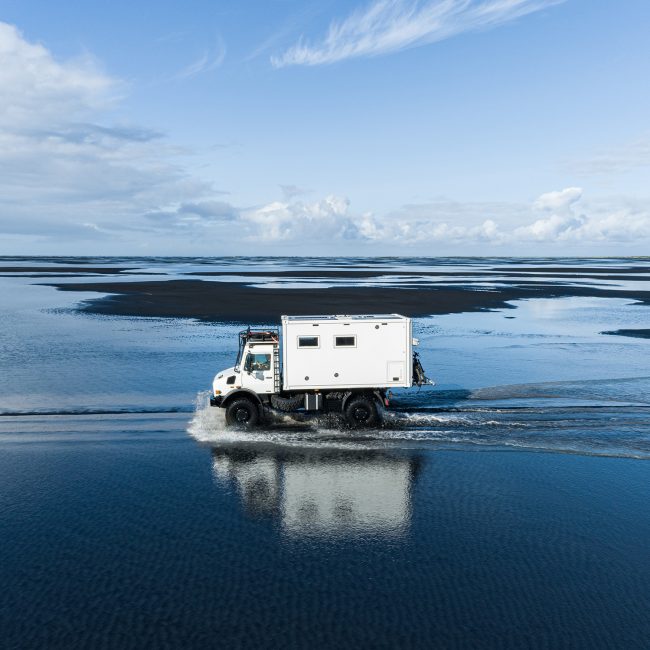
Iceland rental expedition – trip 1
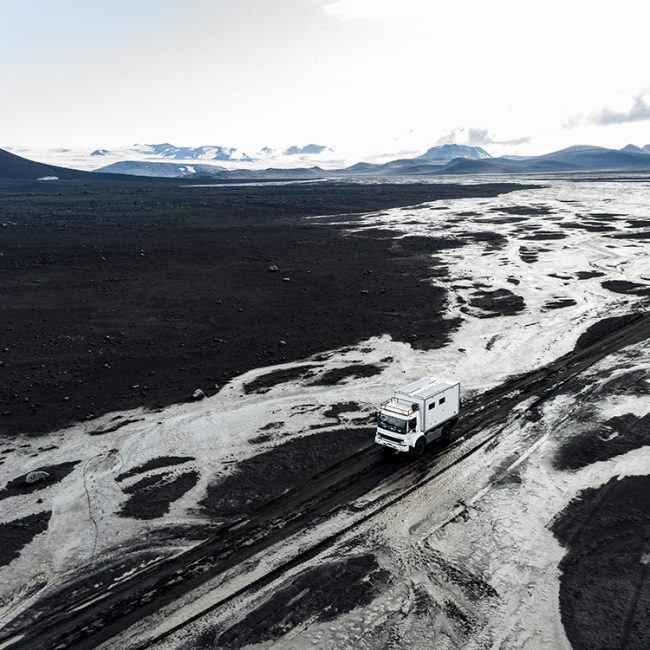
Iceland rental expedition – trip 2
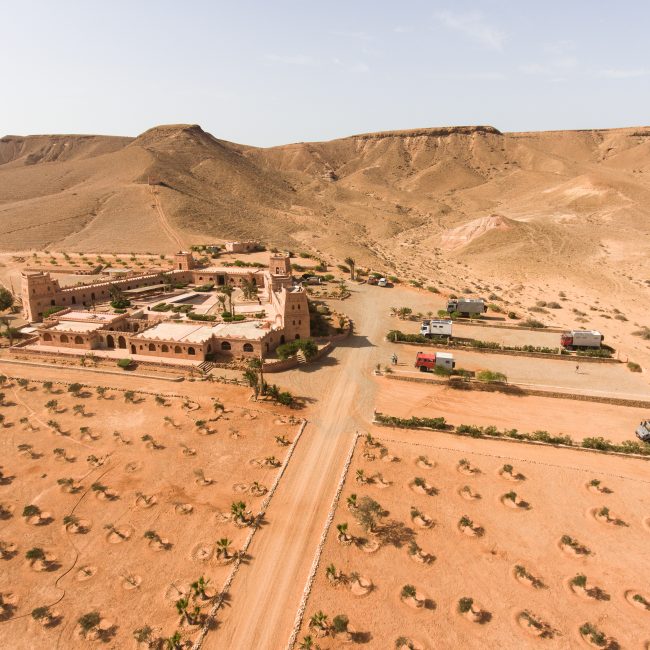
Morocco rental expedition – trip 1
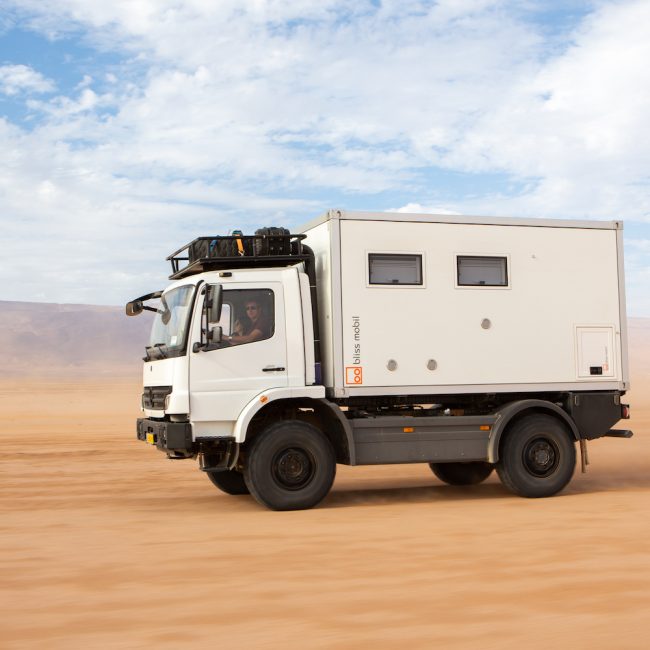
Morocco rental expedition – trip 2
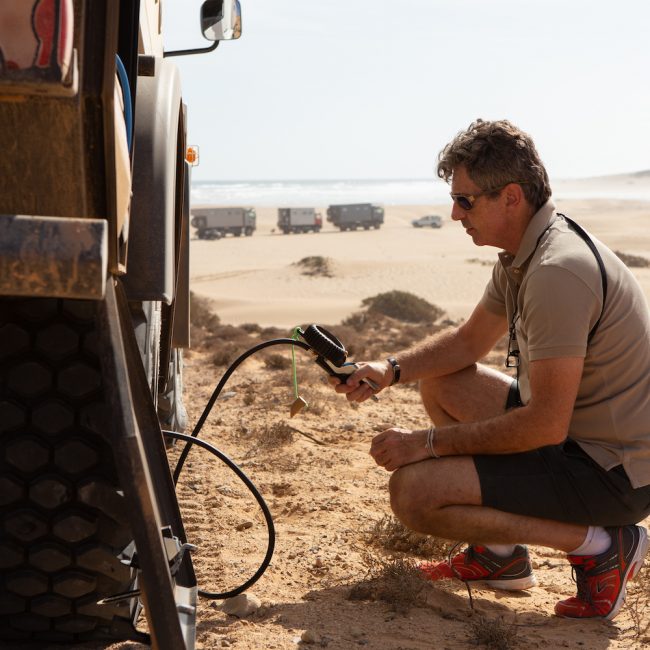
Morocco rental expedition – trip 3
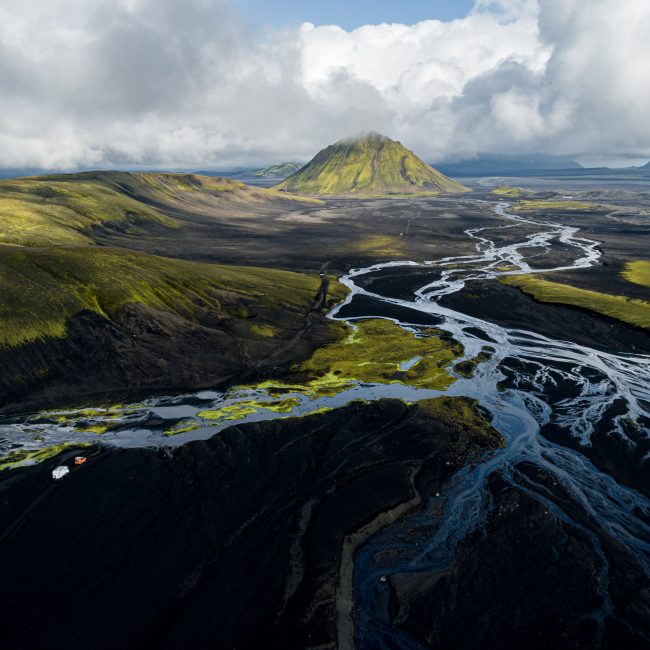
Iceland rental expedition – trip 3

tell me more
Enter your details below and learn about all the perks you get by using Xtrail Explorer.
Or call us for more info:
+1 312 749 8649

- Gear Showcase
- Editors’ Choice
- Events News
- Industry News
- Trips & Trails
- Industry Spotlight
- Community Spotlight
How-to: Plan an Overlanding Trip
- May 16, 2022
Planning a trip is the first step to getting out there and having the adventure of your dreams. If you’re just starting out in overland travel, here are a few tips to take you from map to trail in no time flat.
Where are you headed?
Whether you have your sights set on a cross country trip or a long weekend in your home state, start your trip planning by choosing a destination or a region of interest to get you pointed in the right direction. In the world of overlanding, we often say that the journey is the destination, but setting a goal will help guide your path.
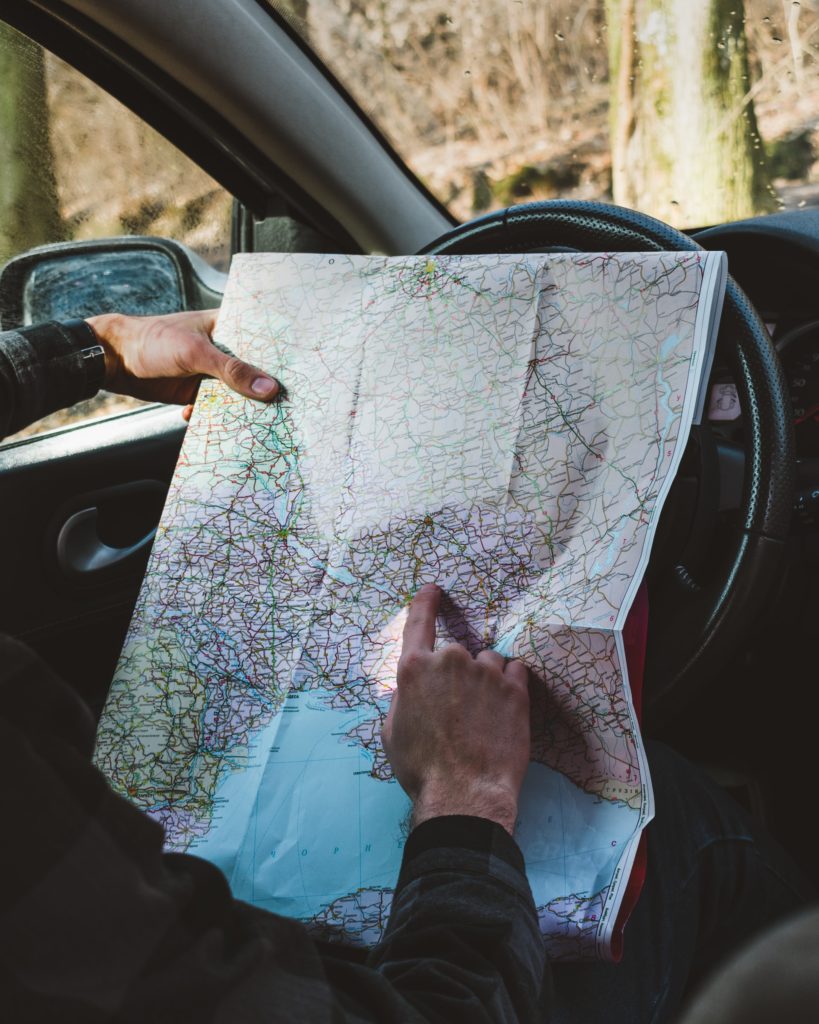
Determine how much time you have for your adventure and remember to be reasonable with your expectations. Overland travel has a way of taking longer than you might expect and there’s nothing worse than feeling rushed when you’re deep in the backcountry. It is far more satisfying to dial down your daily mileage in favor of exploring the spur trails and points of interest, rather than just rushing along to the next campsite.
READ MORE: What Is Overlanding?
A reasonable travel goal can range from 50 to 200 miles of off-road travel per day. Your distance will vary depending on a range of factors from your skill level, to your choice of vehicle, to the type of terrain you decide to tackle. Remember that it’s always better to get into camp early with daylight to burn than to still be slogging along once the sun has set.
If you are interested in learning more about trip planning and overlanding in general, Overland Expo makes a great waypoint to aim for. Every event is located in the heart of a fantastic overlanding destination so you can plan a great route to get there and leave with all the knowledge you need to head out on your next adventure.
How are you getting there?
There are lots of resources to help you determine your route, including the Trips & Trails section here on the Compass . Once you have a destination and timeline in mind, figuring out your route is where the fun begins. This is not the time to jump on the highway and make a beeline for the KOA that popped up in your google search. Get out the maps and start building a great route.
Paper atlases and gazetteers are one of the best ways to get a wide-angle view of the area you are headed to, as are the Butler Motorcycle Maps if you’re traveling on two wheels. Google Maps are also very helpful for getting an overview of the region and turning on the satellite and terrain layers will give you additional insight into the area.
Once you’ve gotten a lay of the land, start to focus on what piques your interest the most. Recreation atlases will give you additional insight into things like camping areas, hiking trailheads, and historic markers. Forest Visitor Maps provide information on attractions, facilities, services, and activities.
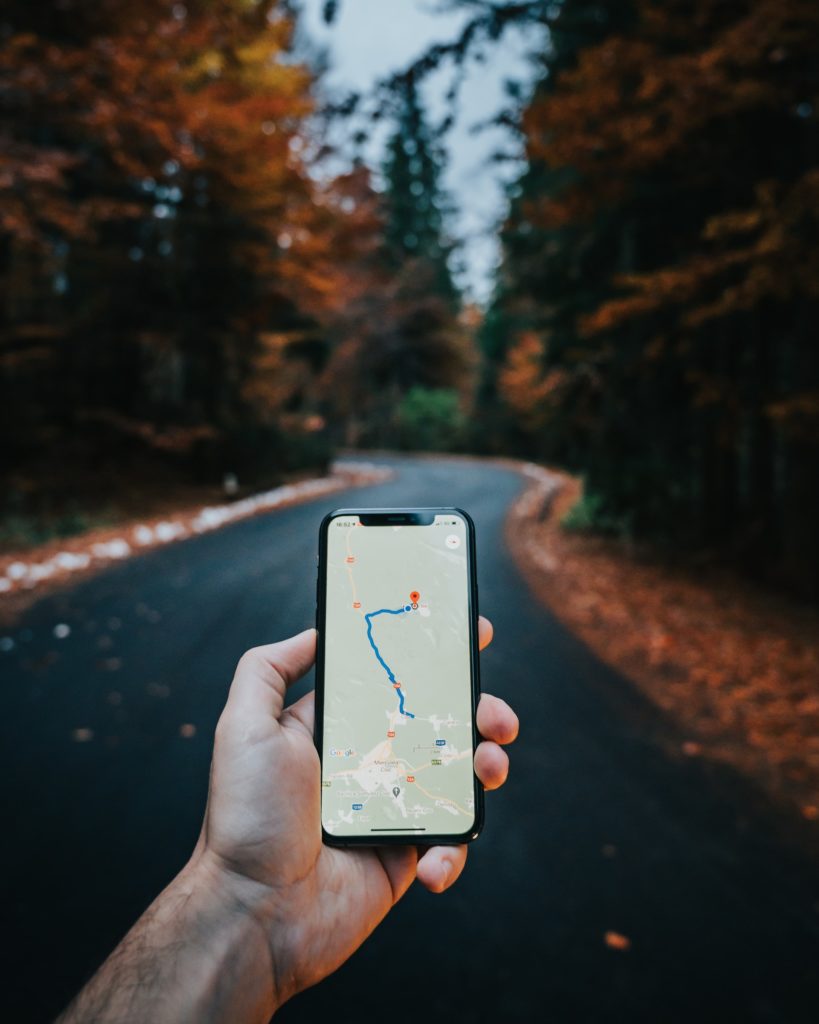
If you prefer your trip planning on the digital side, there are tons of great programs out there. Apps such as onX, Gaia GPS, and REVER have scaleable views, offline mapping options for use when you’re out of cell range, and layers to give you insight into land management and terrain. Apps such as Sekr and iOverlander can help you find campsites, as well.
As you’re pouring over all your mapping resources, remember that this is an overland trip and you will require fuel on a regular basis. Figure out your vehicle’s range and plan your fuel stops frequently enough so that you’re not sweating it out in the red or, even worse, running out of gas far from the nearest gas station.
Whether you are in a four-wheeled vehicle or on a motorcycle, figure out your range and remember to account for slow speed, low gear travel that can greatly alter your MPGs compared to when you’re just cruising along on the tarmac.
What are you bringing?
There is nothing better than a day of dirt road travel that ends at a fantastic campsite. For your overland travels, you’ll want to have everything you need to eat and sleep comfortably at camp. Driving and riding require skill and concentration, both of which depend on getting a good night’s sleep, staying hydrated, and consuming a few quality calories.
READ MORE: How to : Start Overlanding
Your camping gear doesn’t need to be fancy, but having gear that helps ensure some proper rest is key. When you plan your camp kit, make sure you have the basics for shelter and warmth: a tent or other shelter and a sleeping bag and pad to insulate you from the ground. Your camping setup will vary greatly depending on the time of year and what your rig is, but as long as you have a few creature comforts, you’ll be sleeping under the stars in no time.
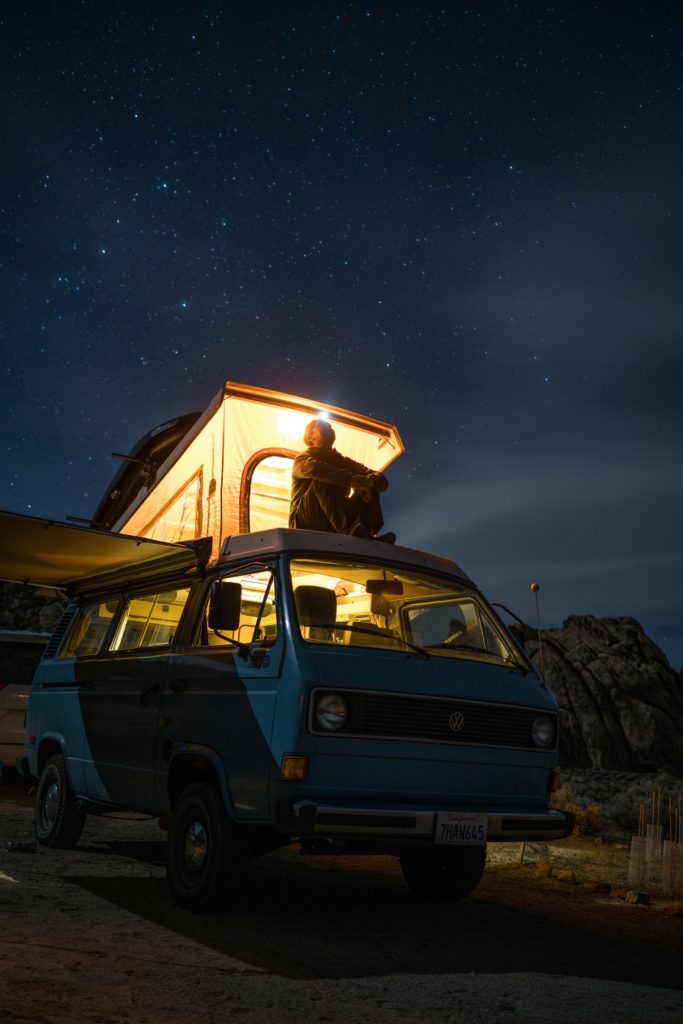
Just because you’re headed out for three days or three weeks, don’t feel like you need an entire trip-worth of water. It is often easier and more efficient to plan your water around frontcountry refueling stops. When you head out, bring at least what you’ll need to get to the next gas station, plus a little extra in case you get into a bind. When you fill up your truck, restock your water at the same time, especially in hot and dry environments.
When it comes to food for your journey, everything from freeze dried backpacking meals to filet mignon tastes better when you cook it at camp. You can keep it simple or go full-on gourmet, but remember that you’ll need everything to prepare, eat, and clean up after your meal. Plan on bringing the sort of stove, pots and pans, and dishes that will suit your needs and cooking ambitions. Also, don’t forget to bring a trash bag to dispose of scraps and packaging so you leave your campsite better than you found it.
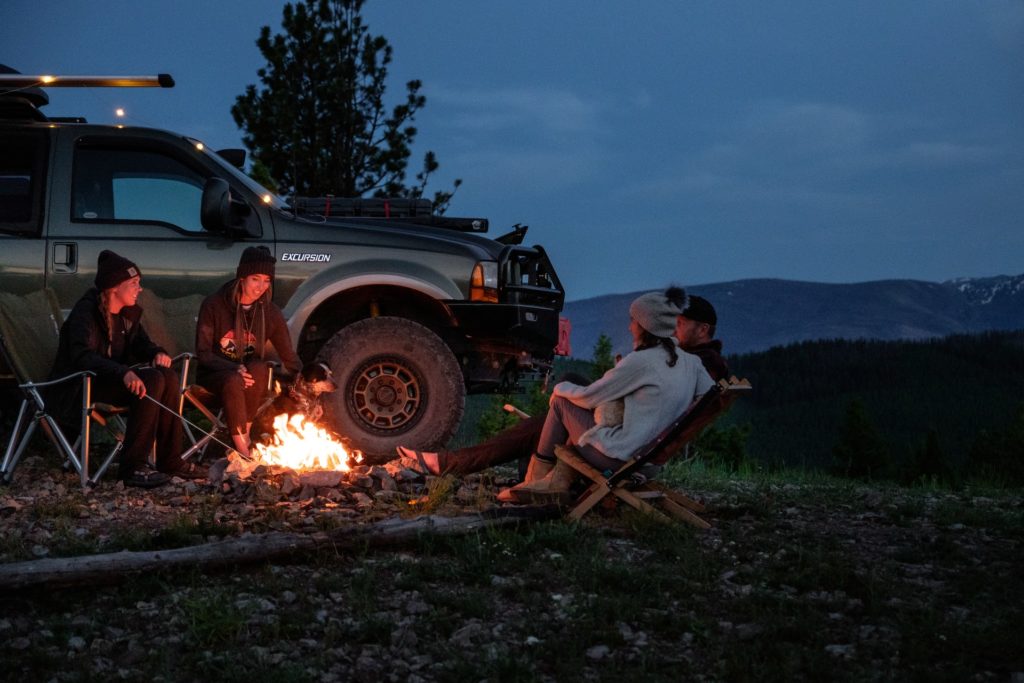
When it comes to trip planning, it is of utmost importance to be honest with yourself about your timeline and skill level. A moderate trip that gently pushes your comfort zones is far more productive and way more fun than getting in over your head when you’re new to backcountry travel. There is no shame in taking an easier route if you’re traveling solo or new to overlanding. After all, the idea is that you’ll take this trip and, as soon as it is over, you’ll return home stoked to start planning the next one and the one after that.
Latest Stories

The Best Gear of Overland Expo West 2024

KRUG Expedition & Arctic Trucks Debut Six-Wheeled F550

Alu-Cab Announces Spacious 'ModCAP Family' Camper
Photo by Brett Willhelm
THE WORLD IS WAITING.
- Meet the Team
- Work with Us
- Czech Republic
- Netherlands
- Switzerland
- Scandinavia
- Philippines
- South Korea
- New Zealand
- South Africa
- Budget Travel
- Work & Travel
- The Broke Backpacker Manifesto
- Travel Resources
- How to Travel on $10/day
Home » Budget Travel » The ULTIMATE Guide to Overland Travel (2024)
The ULTIMATE Guide to Overland Travel (2024)
It is absolutely without question that my best travel journeys to date have been overland.
Some were on motorbike, others were by way of a cardboard sign on the side of the road, and I have visions of future journeys that involve a big old school bus traversing the lands between Europe and Asia.
Overland travel is inspiring, and it is undoubtedly the best way to hit the road, especially as a backpacker looking to save money and dig deep into countries and cultures. While social media may have you thinking that you need to spend tens of thousands of dollars on a tricked out 4×4 to become an overlander, I’m here to completely dispel that myth.
Sure, van life and Land Rover Defenders are certainly a type of overlanding, but they’re not the end all be all.
Overland travel can be as simple as sticking out your thumb and hitchhiking, or using trains and shared taxis to get from one place to another. But regardless of the rig you choose, I guarantee you the experience of coasting along wide open plains at your own pace, sharing meals of yak yogurt with nomads, and getting to pitch your tent (or park your ride) just about anywhere will be absolutely worth it.
But still, I totally understand that it can all be intimidating. So let’s set the record straight with this ultimate guide to overland travel – where you’ll see that this is very much a “do as you like” adventure.
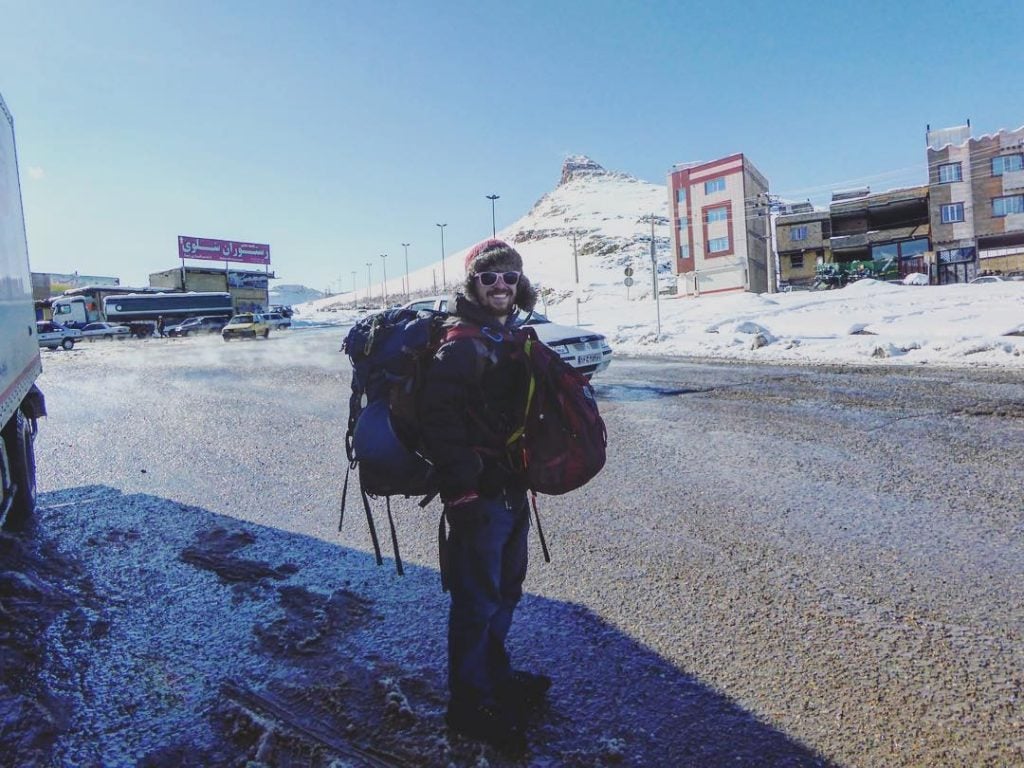
The Broke Backpacker is supported by you . Clicking through our links may earn us a small affiliate commission, and that's what allows us to keep producing free content 🙂 Learn more .

Do You Want to Travel FOREVER??
Pop your email in below to get a FREE copy of ‘How to Travel the World on $10 a Day!’.
What is Overland Travel?
While you most likely already know the literal definition – traveling by land AKA avoiding flights – there’s a lot more to overland travel than just what’s in the name.
Overland travel – whether it be by foot, by bicycle, by rail, by van or whatever method you choose – is an art in and of itself. Closely intertwined with my other favorite form of budget backpacking – slow travel – overlanding allows you to get to know the places you visit far more deeply than a bunch of flights ever could.
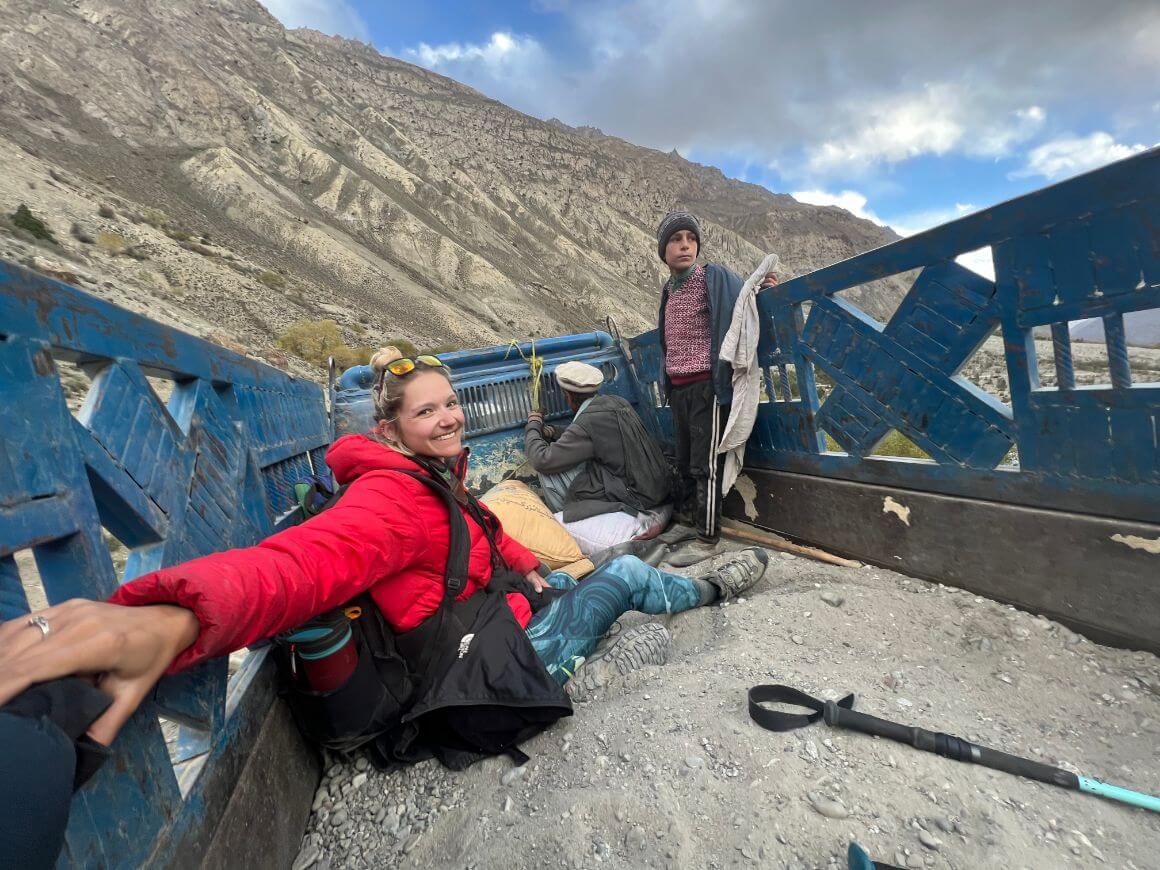
Overlanding is TRULY where the journey matters even more than even the destinations themselves. It’s what gave me some of the best moments of my life, something I know virtually all of my favorite adventurers would agree on when reflecting upon their own journeys.
And once you get started, I promise you you’ll only want to dig deeper and deeper into what it means to become an overlander…
Why YOU Should Overland
Before we REALLY get into this, I want to make something clear.
Overland travel doesn’t HAVE to be an odyssey. While it is for many travellers – like my journey from the UK to Papua New Guinea – you can travel overland without crossing a single international border.
The thing is, there are no rules to this type of travel. There’s no right or wrong way to become an overlander. You don’t need a tricked-out Land Rover Defender, you don’t need a van, you don’t need a bicycle. Hell, plenty of inspiring adventurers have embarked on incredible journeys with nothing but their backpack, a sign, and a stuck-up thumb.
So that, my friends, is one of the reasons WHY you should try overland travel: it’s truly for everyone and anyone.
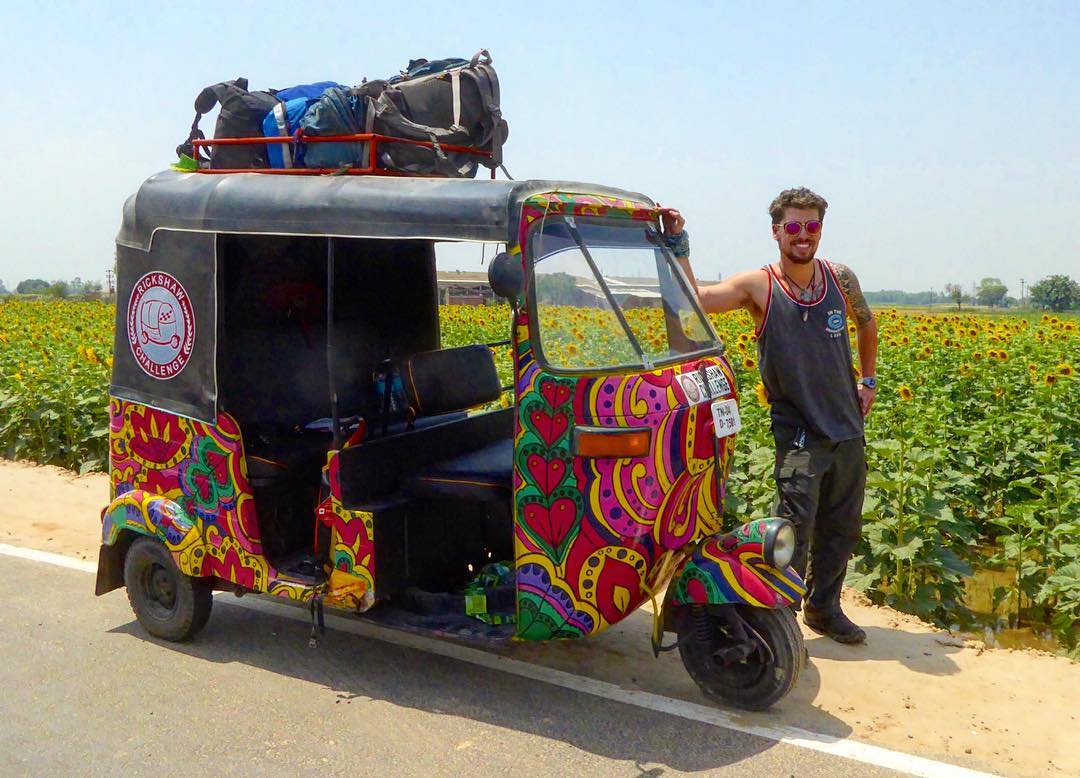
But beyond that, in all my years on the road, it’s this type of travel that’s kept me addicted to life on the road. It’s absolutely not the most comfortable, but it will teach you the most about the world, and about yourself too.
Overland travel will push you to your limits, and really make you work for each and every view and experience you attain.
For some – like cyclists – that work may be physical. For others, it may be mental: such as moving past introverted tendencies to get around by hitchhiking or dealing with driving in brand-new countries with insane motorists.
It allows you to experience life on the ground to the fullest: minute by minute, mile by mile.
Ways to Travel Overland
This is no one-size-fits-all all method of travel, as there are so many ways to overland. I’ve even seen people do it completely by foot or on something as crazy as a unicycle.
But the following are the most common, and popular, ways to get around on the ground:
While I am not a cycling fan myself, those who have done it have nothing but incredible things to say about bikepacking – which is essentially overlanding with a bicycle strapped with a whole lot of stuff. Travelling by bicycle gives you the chance to slow down and see more than virtually any other way of overlanding.
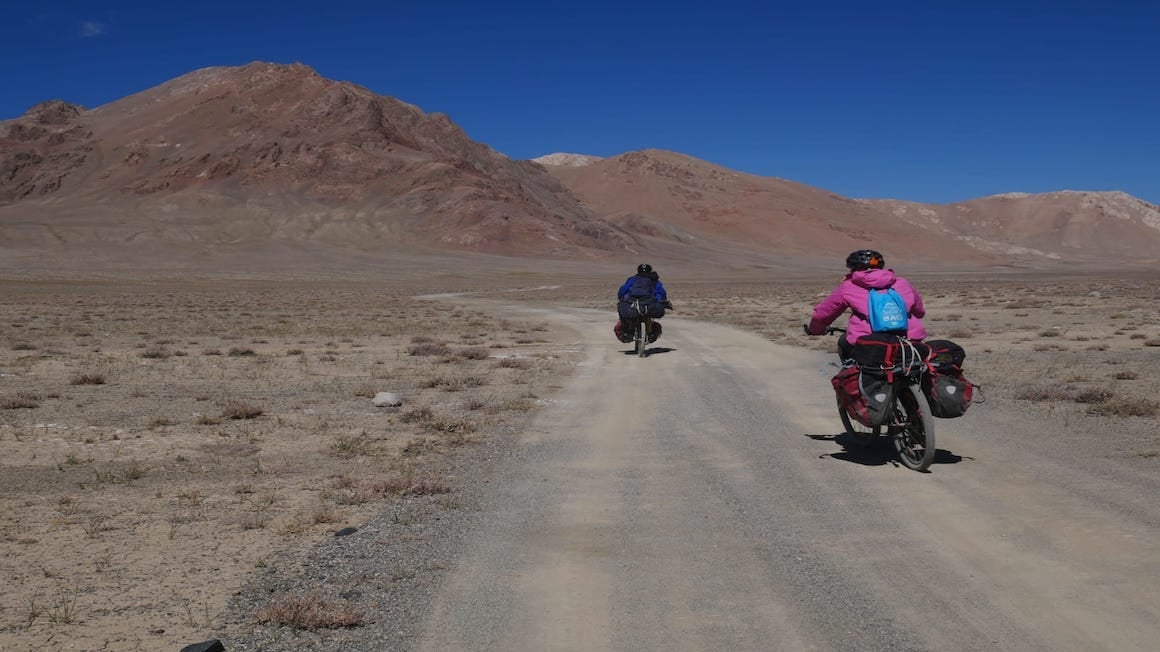
For one your speed (most cyclists don’t do more than 70km per day, depending on the terrain) will allow you to take in just about every village and turn – you’ll get to camp in places far off the tourist trail and meet an incredible lot of locals.
But moreover, cycling is as simple as it is cheap: you don’t need to worry about fuel or engine oil, it’s significantly easier to repair issues, and spare parts don’t tend to weigh that much. It’s also a hell of an accomplishment: unlike all the other forms of overland travel aside from walking, you’ll be physically putting in work every single day.
By Motorbike
As much as I love hitchhiking, traveling by motorbike truly ignites a passion that I have rarely found in other methods of exploring. The feeling of crisp mountain wind on my face as I coast through surreal scenery is one that just doesn’t get old, and it’s certainly something I’d like to try out for longer periods.
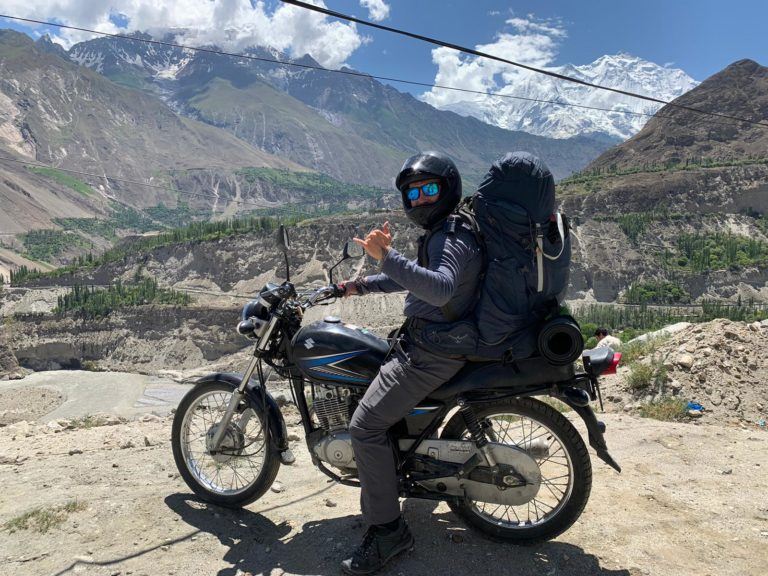
The one thing to keep in mind though is that start-up costs will not be cheap. Good bikes that can actually make it across continents are not cheap, and you’ll also need to buy extra tires, tons of fluids, and other parts that likely will not be available in the places you intend to ride.
But still: it’s worth it. You get the benefits of cycling without the intense struggle, and you’ll be able to maneuver in places where cars cannot. You’ll be able to carry a lot more than a bicycle could, and it will still be cheaper than any van or 4×4.
By Van/Your Own Vehicle
Perhaps the most OG form of overland travel is with your own car: whether it be a van, a 4×4 or an old ambulance, I’ve seen adventurous souls carving their own paths in virtually every type of rig you could imagine.
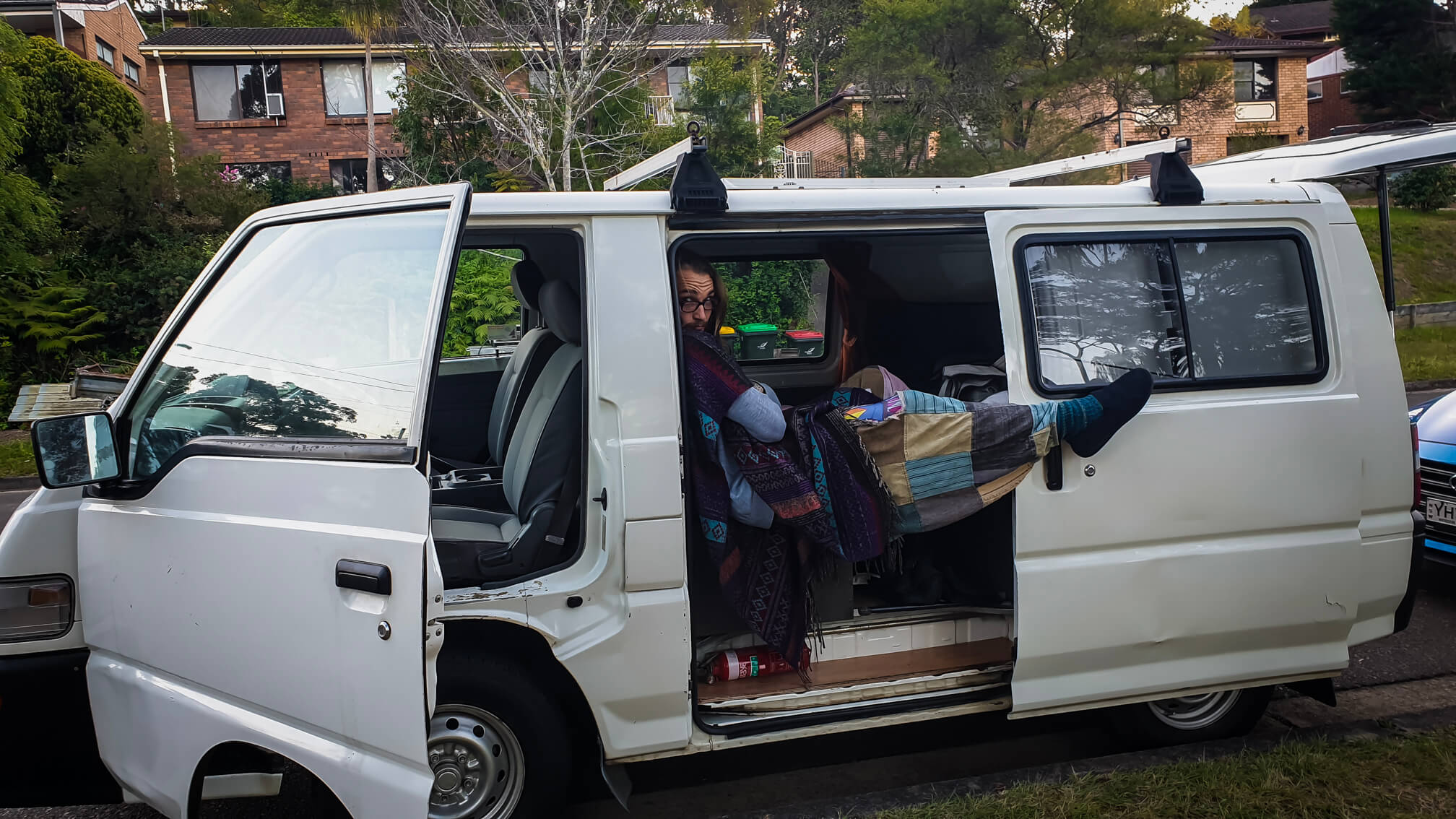
With the popularity of vanlife these days, I’m sure you’ve thought about or at least heard about this craze. I mean, the upsides are many. Your home is with you at all times, you can carry so much more stuff, and you can design your ride exactly as you like. For many, the process of building their house on wheels is just as special as the trip itself.
But there are negatives too: many countries require a carnet de passage that often requires a hefty deposit, repairs can be super expensive, and it’s a whole lot of responsibility. But if you’re determined to make it happen, this is undoubtedly the most comfortable and adventurous way to travel overland, as you can go just about anywhere and won’t be as limited by weather.
By Hitchhiking
My overland hitching journey from UK to Papua New Guinea may not have been completed, but it certainly brought me some incredible (and life-changing) travel memories that I’ll hold on to forever.
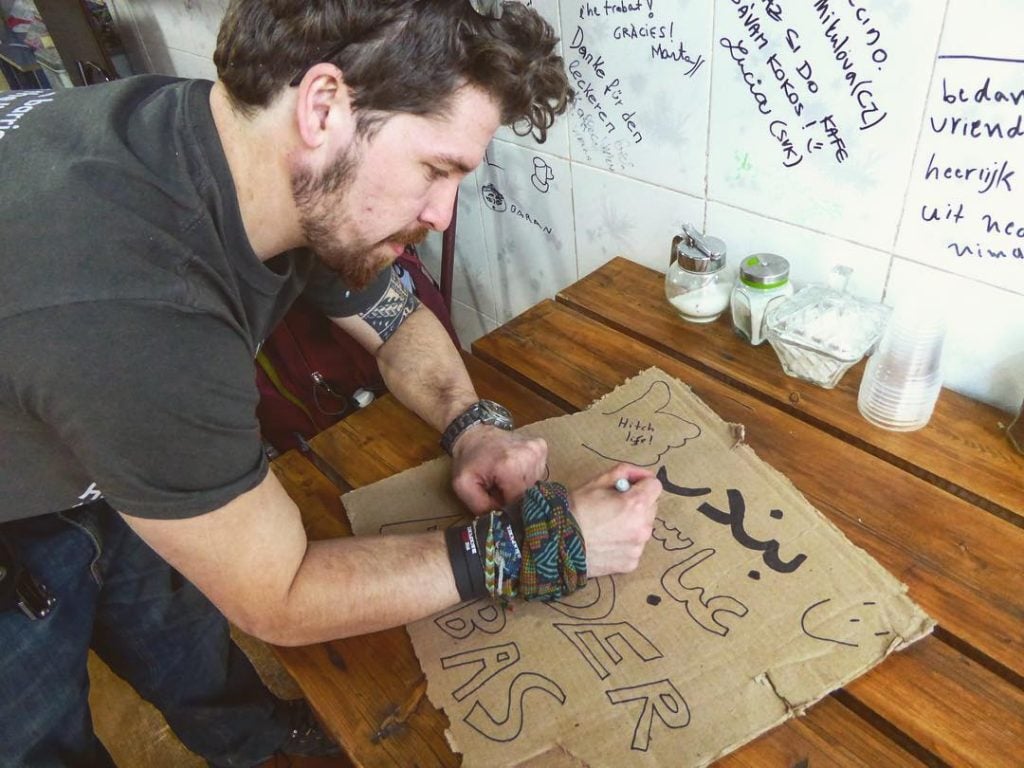
Exploring overland by way of the thumb is not for the faint of heart, or for those lacking patience. But it will bring you closer to strangers and teach you more about the world than any other type of travel. When you’re in a vehicle of any kind (even a bicycle) it somewhat separates you from locals: you’re self-sufficient, right?
But when you’re relying on the kindness of random folks to help you see the world, it opens up doors you didn’t even know were in sight. It leads to unexpected family dinners in local homes, to long chats alongside crackling fires, and to hours spent in random places you would have never visited otherwise. Hitchhiking will change you for the better if you let it, and all you need to get started is a smile, a sign and a stuck-up thumb.
Overland Travel Tips
My top travel tips for making your adventure as smooth as it can be…
1. Do your visa research
While most Westerners are privileged to be able to enter many countries without a visa, you can’t just roll up everywhere. Places like Pakistan, Vietnam, India, and Azerbaijan still require e-visas in advance, and China (often a pain for a lot of overlanders) has a set of very specific rules that usually requires applying for a sticker visa from your home country.
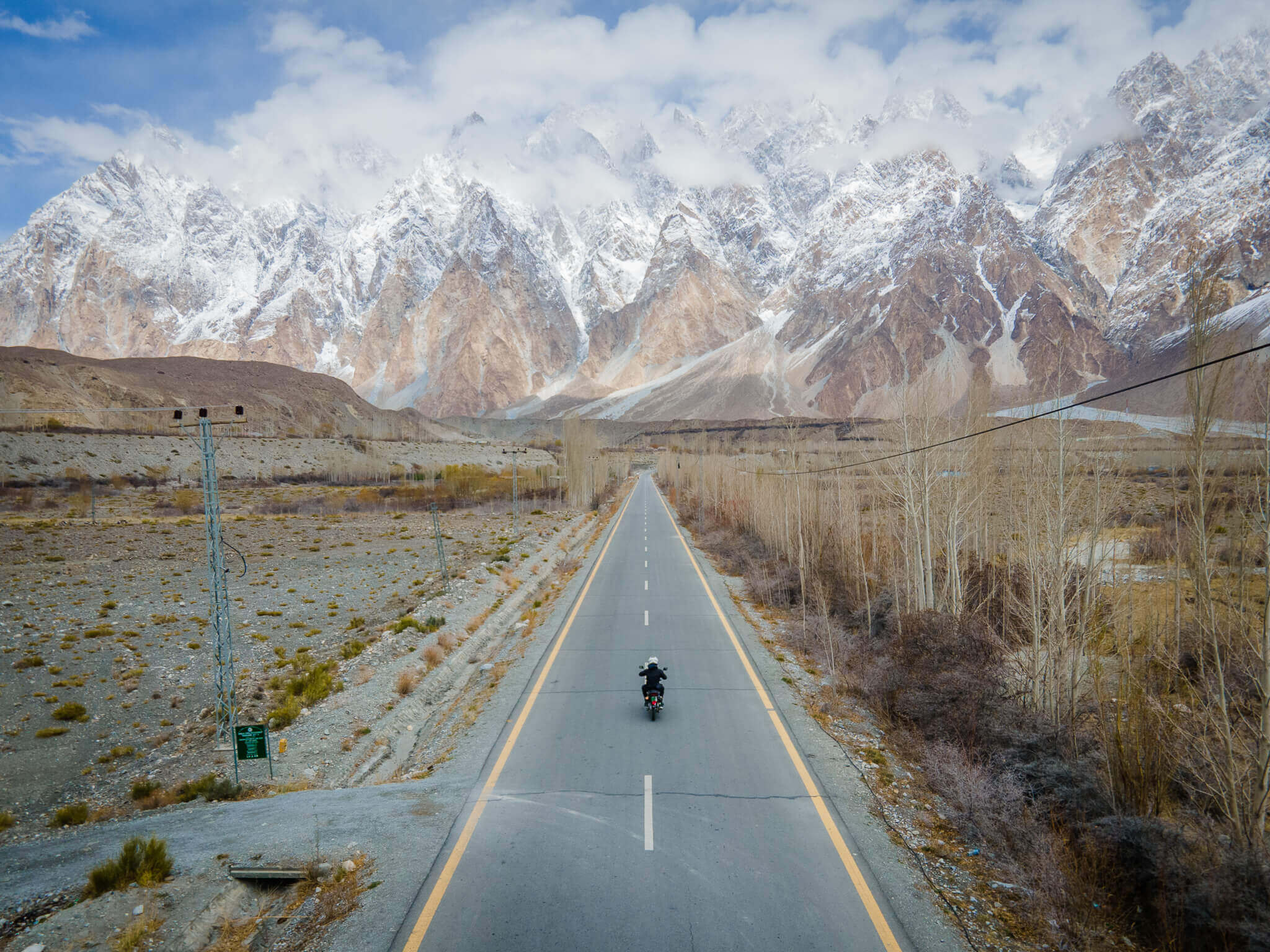
Make sure you read up on every destination you plan to overland through to ensure you don’t find yourself caught out in no man’s land. Sometimes visa rules can change abruptly too, so it’s key to stay on top of them.
2. Bring a LOT of Spare Parts
I cannot stress this enough: if you’re travelling by way of ANY vehicle, it is absolutely essential that you have a good amount of spare parts in tow. Many of the best places to overland are NOT known for their equipment, which means you could potentially be caught out far, far away from civilization.
Spruce up your rig before heading out into super remote areas, and prepare for the unplanned. It’s far better to be a bit overloaded but have everything you need for a mishap than to travel light and become stranded.
3. Don’t forget the little things
You won’t realize how much you need a laundry bag, an eye mask or a good headlamp until you’re stuck in the middle of nowhere with none of the above to be found.
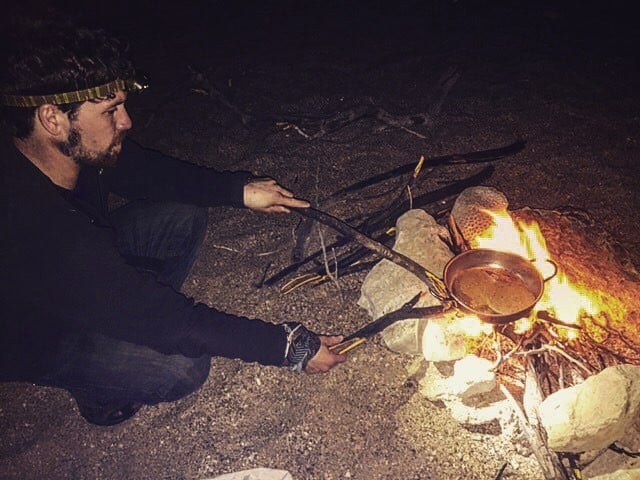
For little things like these, it’s definitely worth it to double up on your supply. You never know when something can get lost or break on the road.
4. Bring a first aid kit
Whether you’re walking, cycling, or traveling in a jacked-out 4×4, the need for a first aid kit remains. You never know when you might need it, but when that time comes, you’ll be incredibly happy you added it to your packing list.
While these honestly aren’t that cheap these days, it’s worth it to splurge on a large, well-stocked one that will actually last you a decent amount of time. If you have any favorite OTC medicines, I highly recommend hoarding them before you head out: pharmacies out in the wild leave much to be desired.
5. Go slow
The art of slow travel goes hand in hand with overlanding, but sometimes it can be easy to fixate on the destination rather than the journey.
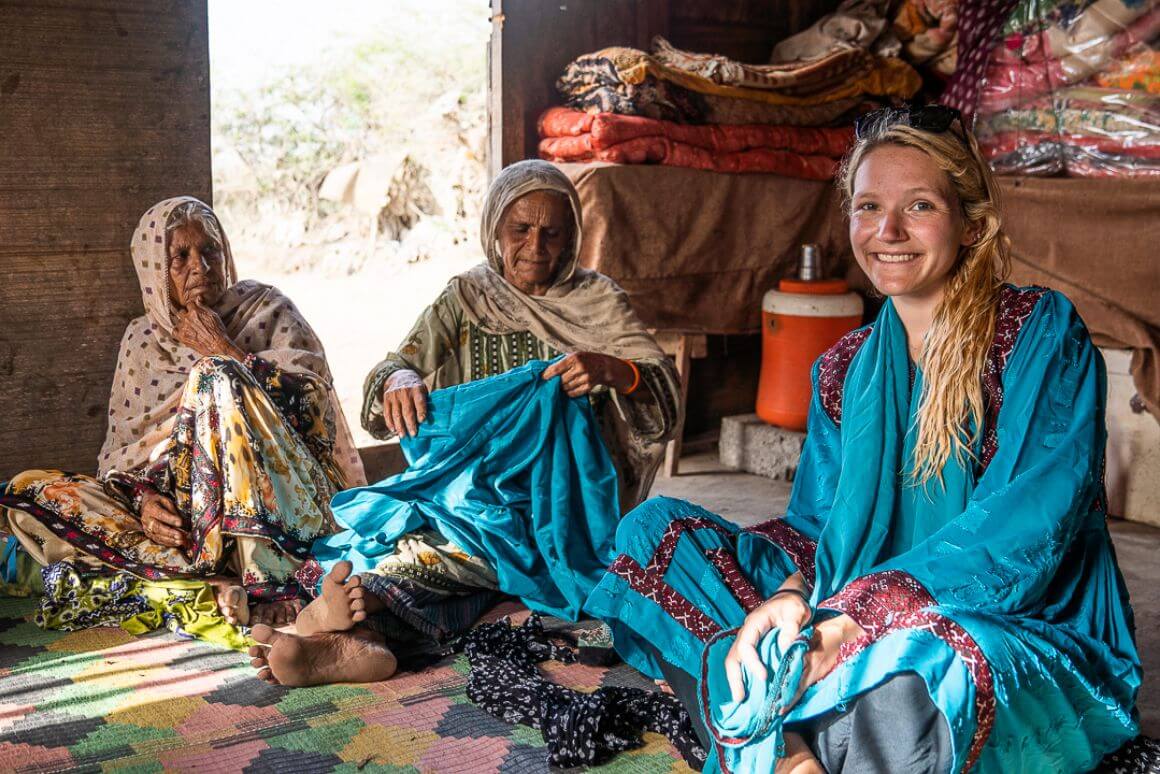
But unless you have a hard deadline to meet, take it easy out there. The whole point of overlanding is to experience the route, not just each individual destination.
Take some rest days where you do nothing but take it all in. Perhaps dive into some journaling, or park yourself at a nice lake or even a beach. The road has infinite pleasures to indulge in.
6. Download Maps in Advance
Even if you’re well prepared with a local SIM card, there will undoubtedly be places without service somewhere along your journey.
Unless you have a paper map like the kind I used to travel with back in the day, get all your necessary navigation downloaded and ready for use when you find yourself with a solid data or Wi-Fi connection.
7. Use Google Translate or Dictionaries
While English speakers are pretty privileged in that we can get by in most of the world, most does not mean everywhere. Take Central Asia for example where Russian rules – you’re going to need some assistance.
While learning a bit of the language in advance is certainly helpful, Google Translate’s offline abilities have truly saved me many times, and it’s a free app you should definitely download. The old-school dictionary method is useful too, especially if you plan to spend time in one place or region for a while.
Overland Travel Packing List
While your specific adventure packing list may look different depending on your method of overlanding, these are a few universal expedition items that anyone will need on the road.
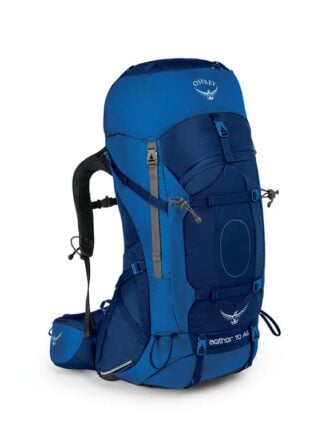
Osprey Aether 70
- Features: Stow-On-The-Go™ trekking pole attachment >
- > External hydration sleeve in backpanel
- > New IsoForm? CM™ hipbelt

ORIA Combination Lock
- Features: 2 pack : set includes 2 zinc alloy 4-digit re-settable combination travel locks >
- > Offers 10,000 combinations
- > Small volume, light weight, fit through the holes of a lot of suitcases

World Travel Adapter
- Features: Input socket: Euro, USA / Japan, Australia / China, United Kingdom (UK version not in Switzerland) >
- > Retractable plugs: Euro, UK, USA / Japan, Australia / China
- > Charge a laptop and two usb devices at once

- Features: Higher resolution display (300 ppi) – with twice as many pixels >
- > Built-in adjustable light – read day and night
- > A single battery charge lasts weeks, not hours

MacBook Pro
- Features: 2.3GHz dual-core Intel Core i5 processor with Turbo Boost up to 3.6GHz >
- > 8GB 2133MHz LPDDR3 memory
- > 128GB SSD storage
Where to Start Overland Travel
You can certainly overland anywhere: from somewhere as simple your home state/province to any country that calls to you, but overall I’d say these are the best places for a truly epic overland travel journey.
Central Asia
The 5 Stans are some of the most adventurous places left on this planet, and they’re home to some of the most mesmerizing roads at that. As of 2023, it’s easy for Western passport holders to travel through all of them (save Turkmenistan), and each one (Tajikistan, Uzbekistan, Kazakhstan and Kyrgyzstan) has something incredible to offer.
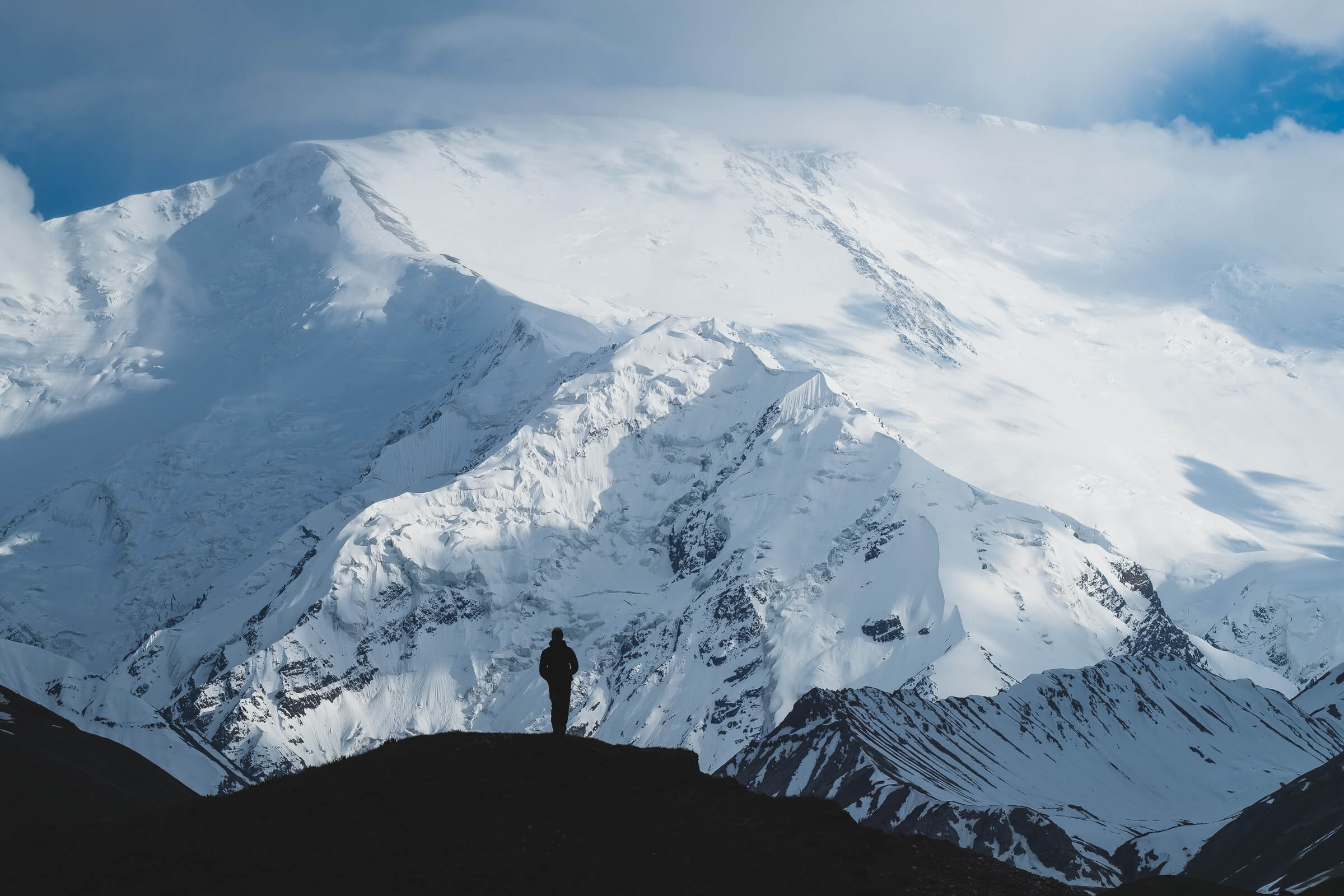
Public transport is also expensive and lacking in most of these locales, which makes overlanding that much more valuable.
All four Stans are all interconnected, safe, and essentially a big old playground for overlanders. Do not underestimate the size of this region though: I’d recommend blocking out at least 3 months to get a real feel for what it has to offer.
South/Southeast Asia
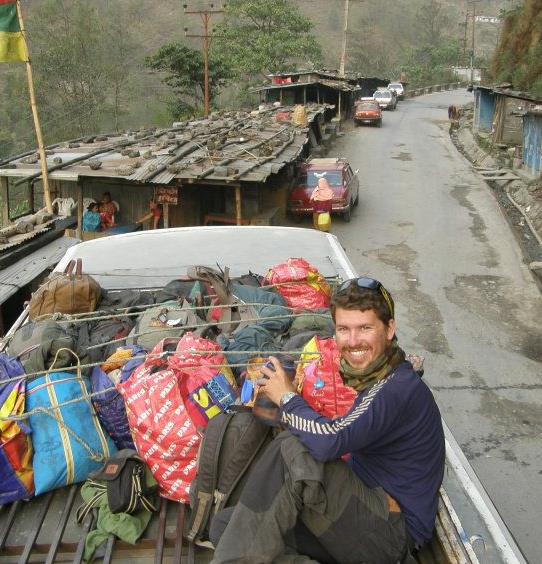
Ah, South and Southeast Asia . Home to some of my favourite countries in the world that have made the most indelible marks on my travels and my life.
India, Pakistan, Nepal and the infamous Banana Pancake trail (Thailand, Laos, Cambodia and Vietnam) are perfect places to give overland exploring a try.
Public transport is widespread, and you’ll get a feel for what it’s like to cross borders. But of course, having your own vehicle will make things even more accessible and give you access to rural areas most do not get to see.
When I rode a rickshaw around India , I found myself incredibly off trail in places that had never even seen foreigners before.
Every year, thousands of Europeans head East to Asia in their own cycles, 4x4s or by way of hitchhiking. And while the journey from Europe to Asia is absolutely epic, you can also opt to travel within the continent too.
With so many countries to check out, it may be the easiest (though certainly not the cheapest) place in the world to overland. Border crossings are simple, and so many countries are interconnected, that it’s a breeze to spend months moving about.
For Brits, Americans and other non-EU nationals, it’s key to be aware of the 90-day visa rule within the European Union. Luckily, there are some fantastic countries out East that you can visit once your time is up.
Many van lifers take to the wide open roads of the United States , with 49 to choose from (discounting Hawaii) and the ability to head north into Canada, I can see why this massive country has become so popular in the world of overland adventuring.
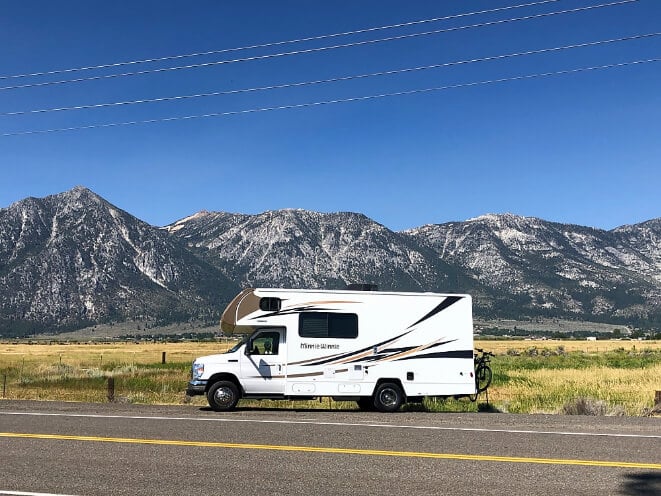
Personally, the USA is not at the top of my bucket list for many reasons, but if you’re already living there and want to get a feel for overland travel, incredible landscapes and opportunities await. Just note that public transportation and hitchhiking are definitely not recommended, as the former barely exists and the latter is not safe .
So van lifers, this is your time to shine. I know many folks who have fixed up relatively cheap vans and set out to see virtually all the states in the Union. If you have limited time or money, definitely focus your energy on the West Coast . That’s where you’ll find all the national parks and the scenery that makes the country worth exploring.
Getting Insured BEFORE Hitting the Road
Regardless of where or how you plan to overland, you should definitely sort some solid travel insurance before leaving home.
ALWAYS sort out your backpacker insurance before your trip. There’s plenty to choose from in that department, but a good place to start is Safety Wing .
They offer month-to-month payments, no lock-in contracts, and require absolutely no itineraries: that’s the exact kind of insurance long-term travellers and digital nomads need.

SafetyWing is cheap, easy, and admin-free: just sign up lickety-split so you can get back to it!
Click the button below to learn more about SafetyWing’s setup or read our insider review for the full tasty scoop.
Final Thoughts on Overland Travel
I hope I’ve now convinced you that your next trip should be an overland one. Ditching flights and committing to crossing borders and provinces on your own wheels (or by way of hitchhiking) will take your travels to entirely new heights.
You’ll have experiences that aren’t possible if you’re jetting about between places, and you’ll get to know each country and region like never before.
With so many ways to make it happen, from cycling to van life to even public buses, overland travel is something that is truly for everyone and anyone.
So what are you waiting for – get to planning and get the hell out there.
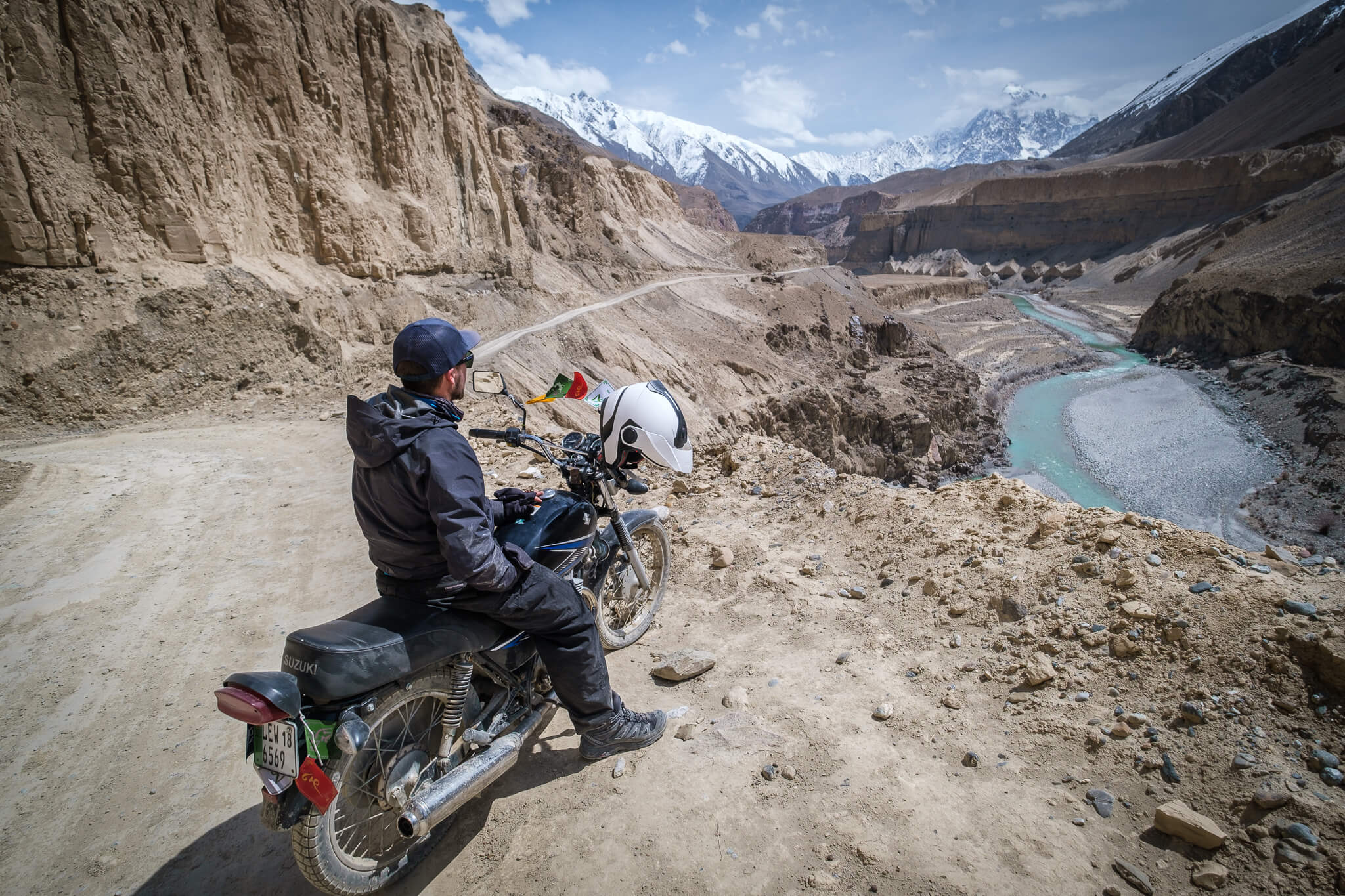
Will Hatton
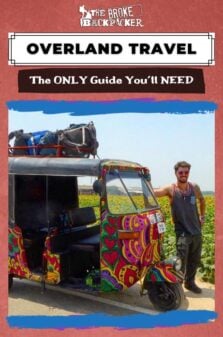
Share or save this post

Will is a freaking trooper!!! I retained great advises from this articles like: Little things we dont think about, hoard your otc in advances, travel by train, buses, mini vans, bike, download your map is a great one when you out of wifi!! Visas if we go to china or india, google translate a must have and to talk t locals and meet people on the journey, enjoy the journey more than the destination, and to buy a kindle to read if no internet, i myself always have been wanted to explore asia and reading this give me ideas on how to get there cheaper and to see the best of all places.
Leave a Reply Cancel reply
Your email address will not be published. Required fields are marked *
Save my name, email, and website in this browser for the next time I comment.
Notify me of followup comments via e-mail.

SAVE ON CENTRAL ASIA OVERLAND ADVENTURES
Get 5% off selected departures, visit the 5 stans this summer, experience adventure, off the beaten track, adventure of a lifetime.
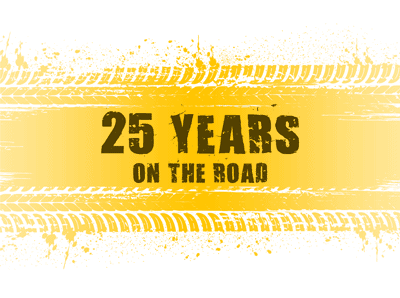
Explore some of the most awe-inspiring places on earth with Oasis Overland. Trips available from 1 week through to 40 weeks, it’s time you escaped the ‘real world’ and experienced adventure.

Oasis Overland Trucks

exploratory trips

UK Overland Taster Weekend

Trips for under £1000

Festivals & Special Events
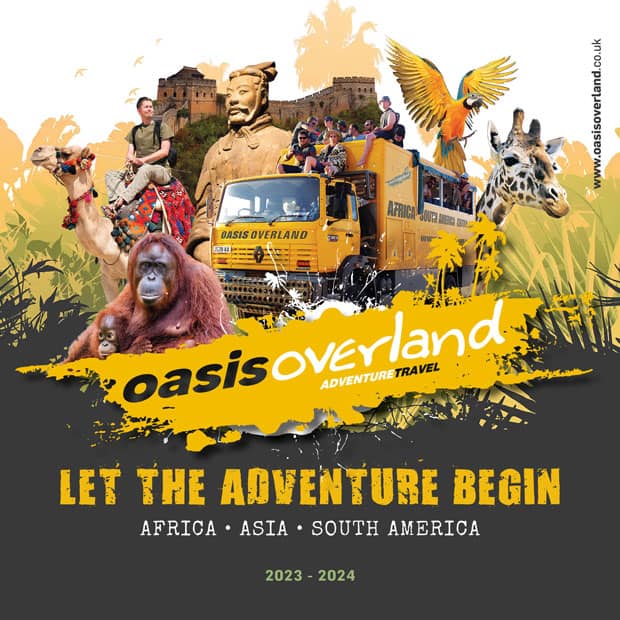
2023-2024 Brochure
Sign up to our newsletter.
Please complete all required fields!
Oasis Overland is committed to keeping your personal information safe. We take your privacy seriously. Your personal information will not be passed on to any third parties. To learn more about how we look after your personal data, please read our Privacy Policy.
(*) required field
This site uses cookies to provide you with a more responsive and personalized service. By using this site you agree to the Privacy Policy and Terms of Service . Please read our cookie notice for more information on the use of cookies on this website.
Black & Veatch Careers

- EMPLOYEE EXPERIENCE
- JOIN OUR TALENT NETWORK
- CONTRACTOR / GIG WORKER OPPORTUNITIES
Experienced Professionals
Interns & new graduates, skilled craft & trade, black & veatch family of companies.
Black & Veatch | BVCI | Diode Ventures | Overland Contracting Inc.

Please note: Black & Veatch careers supports a number of browsers. If you are using Internet Explorer, Black & Veatch careers website requires IE version 11 or higher to be able to apply for jobs. If you experience issues accessing job listings, please email [email protected]
Destination guides
Download free Russia travel guides
St Petersburg
Golden Ring
Lake Baikal
- Murmansk (Kola Peninsula)
Moscow & St Petersburg
- Russia River Cruises
Expedition Cruises
- Trans-Siberian Tours
Northern Lights Tours
Siberia Tours
- Winter Tours
- Students Trips
- Luxury Tours
- Plan My Tour
Start planning my tour
Your Russia, your dates, your mates
- Destination Guides
- Russia Travel Tips
- Russian Visa
- Travel Insurance
- Why 56th Parallel
- Traveller Reviews
FIND ARTICLES BY CATEGORY
- EXPERIENCES
- TRAVEL TIPS
- CULTURE & ETHNOGRAPHY
- FESTIVALS & EVENTS
- WEIRD & WONDERFUL
10 Facts about Trans-Siberian Railway you must know before you go
Home / Russia Travel Tips & Essential Advice / 10 Facts about Trans-Siberian Railway you must know before you go
Trans-Siberian Railway is one of the best ways to explore Russia’s diverse landscapes, culture and people. The railway’s main claim to fame is being the longest continuous rail journey on earth at a jaw-dropping 9,288 km in length.
The Trans-Siberian stretches all the way from one end of Russia all the way to the other! For anyone with a love of overland travel, the Trans-Siberian Railway should definitely be on your bucket list.
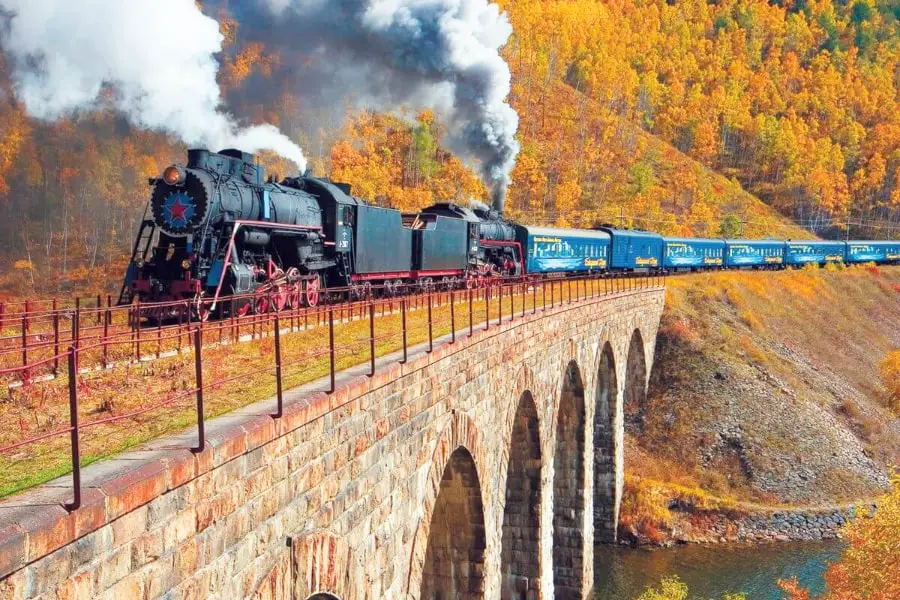
You’ll embark on the same epic journey that traders, travellers, dignitaries and adventurers have been taking since 1916. As for the scenery? Well, let’s just say it’s pretty hard to beat. From the classical grandeur of the great cities to rural fairytale villages, the scenery slowly transforms to reveal the pristine wilderness of the Ural Mountains, the forests of Krasnoyarsk and the awe-inspiring Lake Baikal. The Trans-Siberian is a journey of mammoth proportions and an experience of a lifetime.
For anyone thinking of embarking on a Trans-Siberian Railway tour, we’ve compiled a list of practical and interesting facts to help you get your travel plans underway.
Table of Contents
Fact #1 – The full length of the Trans-Siberian Railway is 9,288 km
The main Trans-Siberian route stretches from the Russian capital of Moscow all the way to Vladivostok, the largest city in Russia’s Far East. The entire journey takes about 6 and a half days to complete, traverses through eight time zones, passes through 87 towns and cities and crosses 16 major rivers.
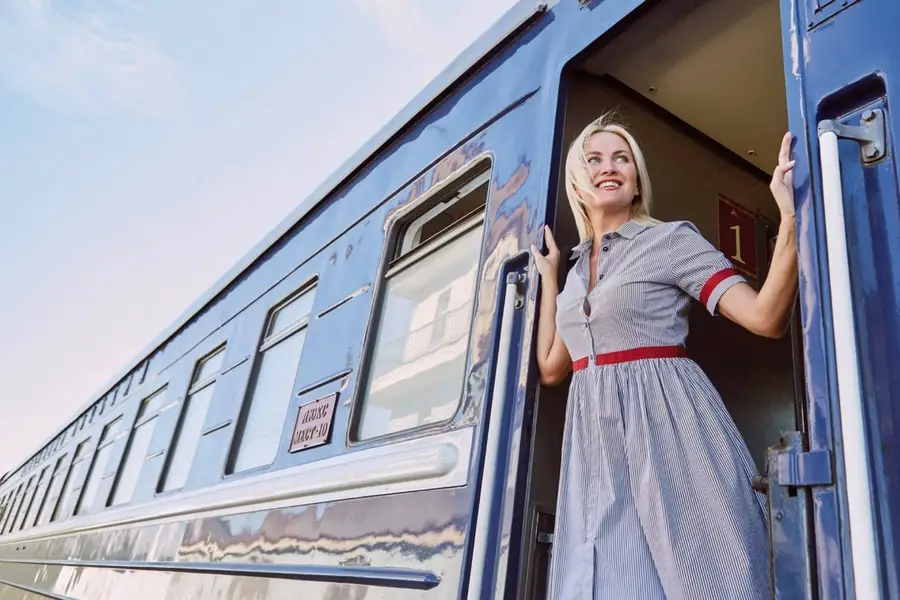
Fact #2 – You don’t have to stay on the train the whole time
You don’t have to do the entire Trans-Siberian Railway in one sitting. As fascinating as the journey is, sitting on a train for six 6 days straight can test anyone’s patience (although there are plenty of train travel enthusiasts who relish it!). It’s possible and highly recommended to just travel a particular section of the route, or break up the journey with multi-day stops in various destinations . You can always jump on the next train that passes your stop. However, you’ll need to purchase individual tickets for each leg of your journey and they can be bought not earlier than 60 days before departure.
Fact #3 – You can travel on the Trans-Siberian to or from Mongolia or China
There’s also a secondary branch of the Trans-Siberian Railway, known as the Trans-Mongolian . Trains heading to China depart Moscow every Tuesday, cross Siberia and then split off from the mainline at Ulan-Ude and head south to Ulaanbaatar and on to Beijing. The 7,621 km Moscow to Beijing journey takes six nights and is particularly interesting to travellers as it offers a contrasting glimpse into the Chinese and Mongolian culture.
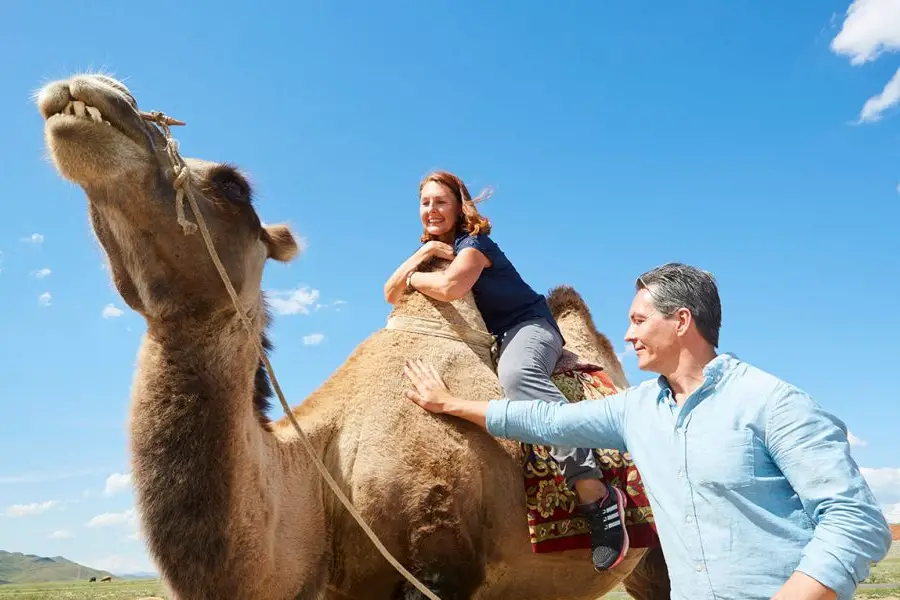
Fact #4 – You can opt for either 1st, 2nd or 3rd class carriages
Most Trans-Siberian trains offer three classes of sleeper service – “ spalny vagon ” (1st class), “ kupe ” (2nd class) and “ platskartny vagon ” (3rd class). First class is the most private – carriages are comfy and roomy with just two berths (fold out sleeper seats) per cabin and 18 berths per carriage. Second class has four comfortable berths per cabin and 36 people to each carriage. Both classes have communal washroom facilities at the end of each carriage. Third class offers open bunks and is a bit too basic for most tourists, often catering for more budget-minded travellers.
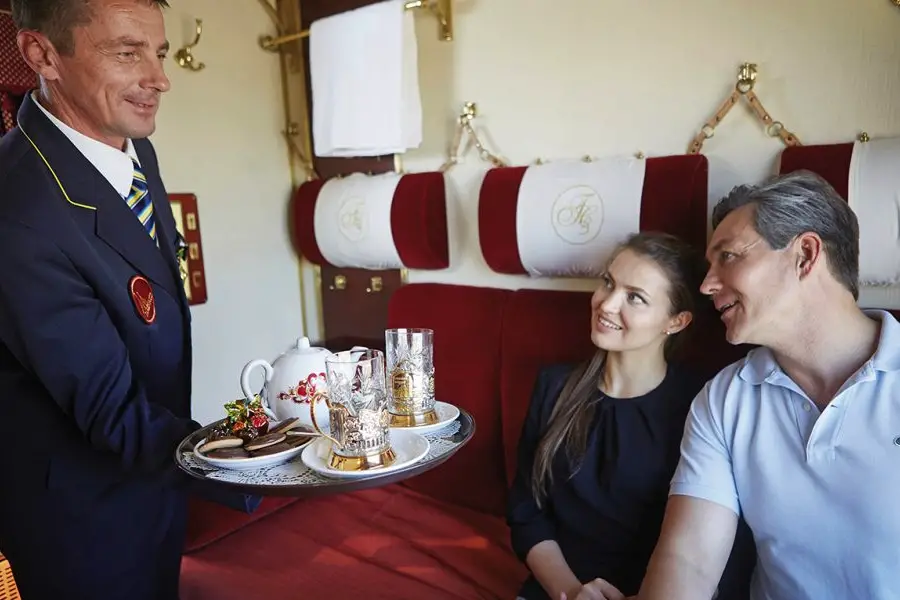
Fact #5 – Travel on the Trans-Siberian is affordable
Considering the vast distances covered, travelling on the Trans-Siberian Railway , is really quite affordable, especially compared to train travel in Europe. As a rough guide, the 6 night trip from Moscow to Beijing in a 2nd class cabin costs around US$ 800. Sure, it might not be as cheap as air travel, but the history, the scenery, the culture and the chance to mingle with travellers from all around the world is absolutely priceless.
Fact #6 – You can travel on the Trans-Siberian all year round
Spring and summer are the most popular seasons for tourists to experience the Trans-Siberian Railway, but the trains run all year round. While the warmer months mean longer daylight hours and a more bustling, sociable atmosphere, travelling between November and April gives you the chance to experience Russia in all its stark, beautiful and enchanting winter splendour . Trains are heated, warm and cosy and as it’s not as busy, you won’t have to book tickets as far in advance – just don’t forget to run up when you get off for a stroll at station stops.
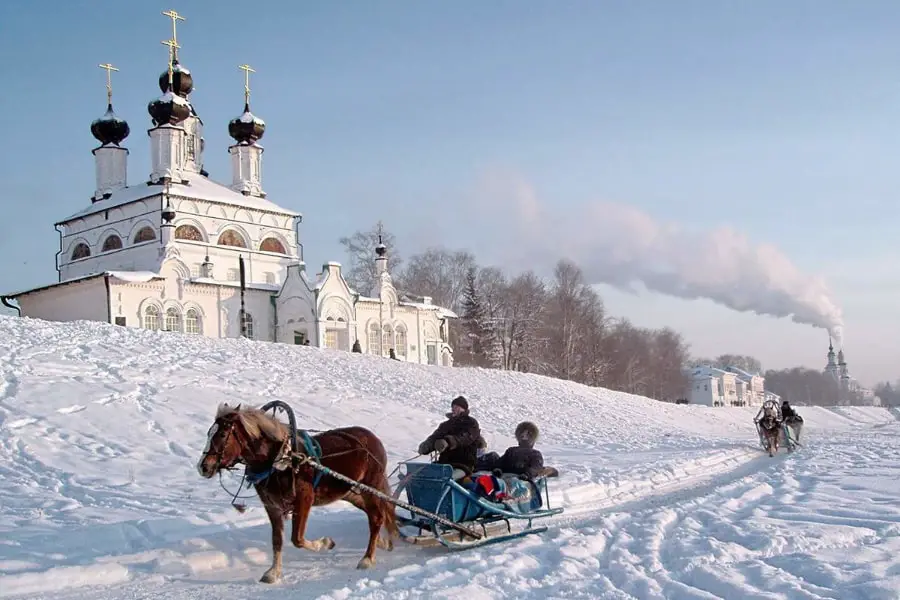
Fact #7 – The train food is surprisingly edible!
Ok, Russian train food doesn’t have the best reputation, and while the Trans-Siberian isn’t a gourmet adventure, the food served in the dining car is generally quite decent and not expensive. Meals are basic but filling, with light meals running at around 350 roubles (around $12) and main meals at around 480 roubles ($17). Expect Russian style soups, steak, schnitzel or fish with rice, salad or potatoes and of course, good old Russian beer and vodka to wash it down with. You can also hop off during stops to buy cheap snacks from station vendors.
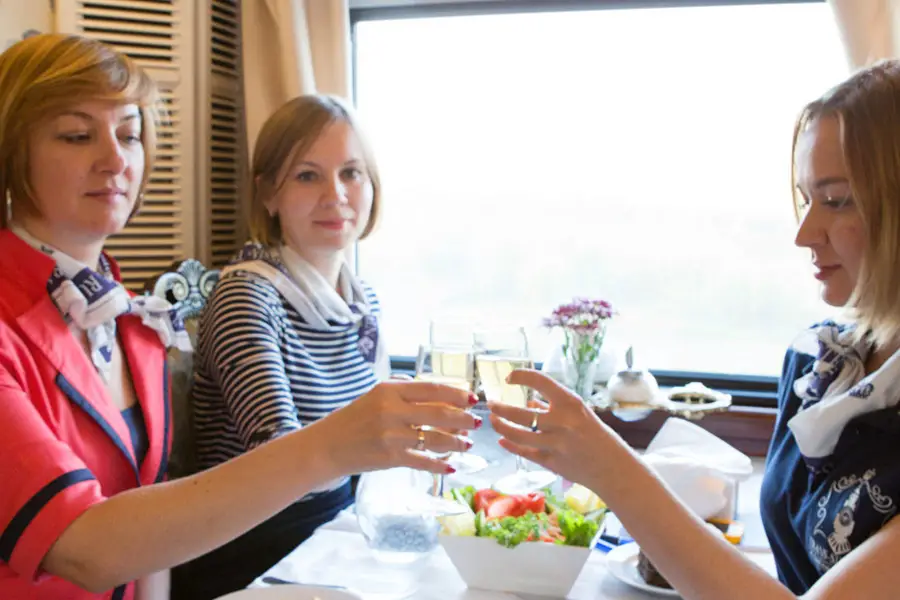
Fact #8 – The Trans-Siberian Railway is safe for travellers
The Trans-Siberian Railway is considered a very safe way to travel. The trains are always full of Russian families on holidays or visiting relatives, and there are plenty of foreign travellers from all around the globe speaking a myriad of languages, so you’ll always find people to socialise with if you choose to do so. Just use common sense as you would anywhere else – lock your cabin door at night and don’t leave valuables lying around unattended. Usually, men and women travel in the same compartments, but on some routes, you can now ask for a ladies-only compartment.
Fact #9 – The train stops at many of the most impressive destinations in Russia
Travelling on the Trans-Siberian Railway provides you with a wealth of opportunities to visit some of the most famous, unusual and spectacularly beautiful destinations in Russia . Some of the stations themselves are incredibly impressive, from the imposing Soviet behemoth of Novosibirsk station to Sludyanka station near Lake Baikal – the only railway station in the world to be built entirely of marble. Some of the most popular stopping off points for travellers are:
- the city of Yekaterinburg with its fascinating Tsarist history
- Irkutsk, the main gateway to Lake Baikal
- Ulan-Ude, Siberia’s frontier bastion of Buddhist Mongol culture
- Vladivostok, the getaway for the Kamchatka Peninsula , where you can observe the iconic brown bears in their natural habitat
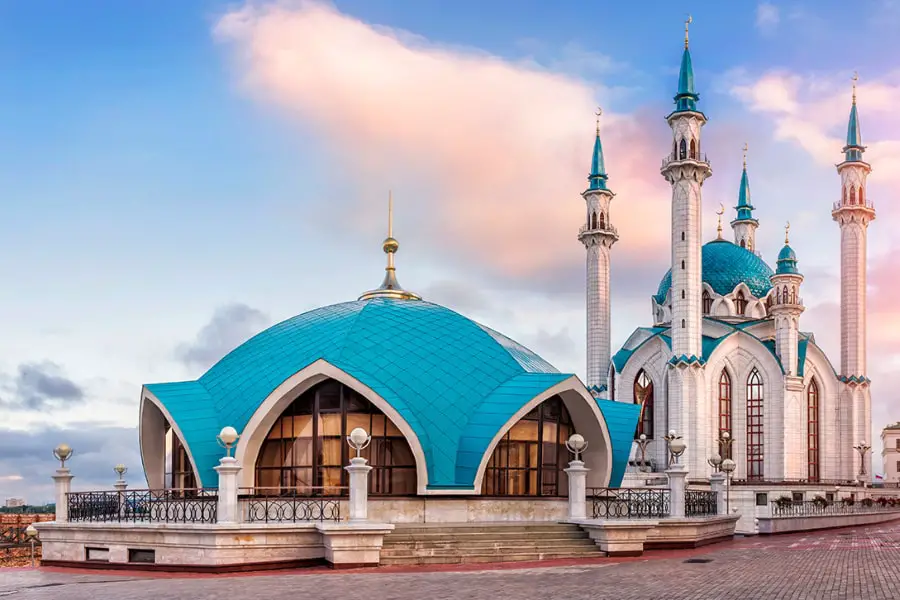
Fact #10 – There are awesomely organised tours of the Trans-Siberian Railway
Want to be part of an adventure of a lifetime? There are many advantages to arranging your Trans-Siberian journey via an organised tour. You’ll share a carriage with a group of like-minded individuals (brilliant for solo travellers), and you’ll have an experienced English speaking guide on hand to answer your questions and assist you with the language barrier. Guided Trans-Siberian Railway tours usually break up the journey with multi-night stops at interesting destinations and include all transfers, hotel accommodation and excursions. With a tour, you also don’t have to worry about booking multiple train tickets for your journey – everything is taken care of, so all you have to do is relax and enjoy the ride!
Related posts


The Russian smile: a mysterious facet of Russian culture
Russians are stereotyped have a reputation for being stern and unsmiling people, but actually, Russians do smile often, and their smiles mean different things in 10 different situations.

Russian architecture - discover the history of Russia's architectural gems
To learn more about Russia’s rich cultural history, all you need to do is look around. Russian architecture, from its signature onion dome rooftops to red-brick kremlins, tells a thousand tales about the nation’s past.
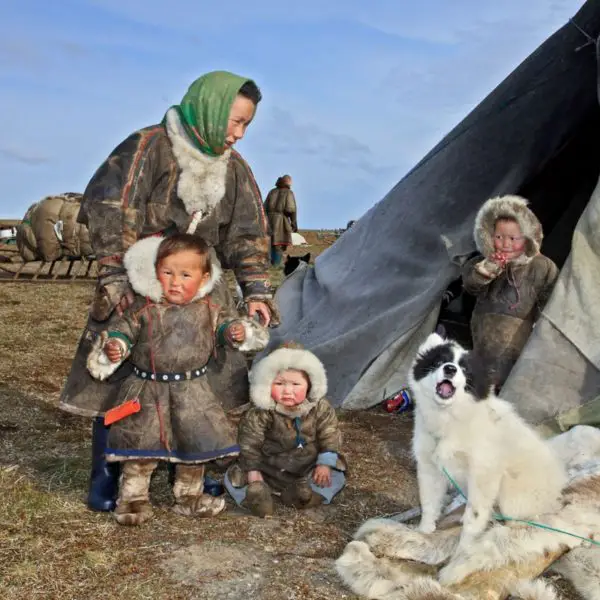
Travel in time with indigenous Russia
Indigenous Russia refers to early tribes from the Far North, Central and Southern Siberia and the Far East, who live in the same territories and keep the same way of life and traditions over centuries. 41 so-called tribes were recognized by Russian law in the year 2000 as a “Minor Indigenous People of Russia”.
Related Tours
Trans-siberian winter fairytale.
Go on a troika sleigh ride or stroll through a snow forest under the winter morning sun. Sleep snugly on the Tsar’s Gold, your heated private train, on this 13-day private ...
Trans-Siberian Odyssey Across Russia
What can be more captivating then crossing Russia from West to East in a train? It gives the full understanding of country’s scale and treasures, of how diverse and united it is ...
Imperial Russia, Classic Trans-Siberian Journey
Embark on a classic two-week adventure across Russia to China onboard the comfortable Imperial Russia train. Starting either from Moscow or Beijing, this train journey will show ...
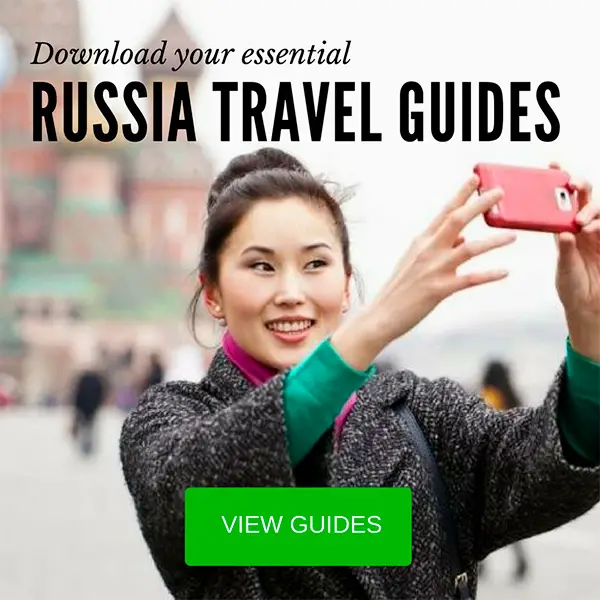
Articles by Category
About 56 th parallel.
56th Parallel is a travel company specialising in providing packaged tours and travel services in Russia.
Our goal is to redefine travel to Russia, focusing on creating the most rewarding experiences, which help travellers unfolds the soul of this exciting destination.
RUSSIA TOURS FINDER
Russia tour finder.
< Return
Destination
Russian capitals and surrounds, siberia and russian far east, russian arctic, travel style, city breaks.
River Cruises
Trans Siberian Tours
Adventure and Discovery
Russia Winter Tours
Other travel styles
Luxury Holidays
Have a question or need specific information?
Send us a note below or call us
Country * Afghanistan Albania Algeria American Samoa Andorra Angola Anguilla Antarctica Antigua and Barbuda Argentina Armenia Aruba Australia Austria Azerbaijan Bahamas Bahrain Bangladesh Barbados Belarus Belgium Belize Benin Bermuda Bhutan Bolivia Bosnia and Herzegowina Botswana Bouvet Island Brazil British Indian Ocean Territory Brunei Darussalam Bulgaria Burkina Faso Burundi Cambodia Cameroon Canada Cape Verde Cayman Islands Central African Republic Chad Chile China Christmas Island Cocos (Keeling) Islands Colombia Comoros Congo Congo, the Democratic Republic of the Cook Islands Costa Rica Cote d'Ivoire Croatia (Hrvatska) Cuba Cyprus Czech Republic Denmark Djibouti Dominica Dominican Republic East Timor Ecuador Egypt El Salvador Equatorial Guinea Eritrea Estonia Ethiopia Falkland Islands (Malvinas) Faroe Islands Fiji Finland France France Metropolitan French Guiana French Polynesia French Southern Territories Gabon Gambia Georgia Germany Ghana Gibraltar Greece Greenland Grenada Guadeloupe Guam Guatemala Guinea Guinea-Bissau Guyana Haiti Heard and Mc Donald Islands Holy See (Vatican City State) Honduras Hong Kong Hungary Iceland India Indonesia Iran (Islamic Republic of) Iraq Ireland Israel Italy Jamaica Japan Jordan Kazakhstan Kenya Kiribati Korea, Democratic People's Republic of Korea, Republic of Kuwait Kyrgyzstan Lao, People's Democratic Republic Latvia Lebanon Lesotho Liberia Libyan Arab Jamahiriya Liechtenstein Lithuania Luxembourg Macau Macedonia, The Former Yugoslav Republic of Madagascar Malawi Malaysia Maldives Mali Malta Marshall Islands Martinique Mauritania Mauritius Mayotte Mexico Micronesia, Federated States of Moldova, Republic of Monaco Mongolia Montserrat Morocco Mozambique Myanmar Namibia Nauru Nepal Netherlands Netherlands Antilles New Caledonia New Zealand Nicaragua Niger Nigeria Niue Norfolk Island Northern Mariana Islands Norway Oman Pakistan Palau Panama Papua New Guinea Paraguay Peru Philippines Pitcairn Poland Portugal Puerto Rico Qatar Reunion Romania Russian Federation Rwanda Saint Kitts and Nevis Saint Lucia Saint Vincent and the Grenadines Samoa San Marino Sao Tome and Principe Saudi Arabia Senegal Seychelles Sierra Leone Singapore Slovakia (Slovak Republic) Slovenia Solomon Islands Somalia South Africa South Georgia and the South Sandwich Islands Spain Sri Lanka St. Helena St. Pierre and Miquelon Sudan Suriname Svalbard and Jan Mayen Islands Swaziland Sweden Switzerland Syrian Arab Republic Taiwan, Province of China Tajikistan Tanzania, United Republic of Thailand Togo Tokelau Tonga Trinidad and Tobago Tunisia Turkey Turkmenistan Turks and Caicos Islands Tuvalu Uganda Ukraine United Arab Emirates United Kingdom United States United States Minor Outlying Islands Uruguay Uzbekistan Vanuatu Venezuela Vietnam Virgin Islands (British) Virgin Islands (U.S.) Wallis and Futuna Islands Western Sahara Yemen Yugoslavia Zambia Zimbabwe
If you have any urgent questions or enquiries, please give us a call +61 412 587 785

Search Smartraveller

Latest update
We continue to advise:
Do not travel to Russia due to the security situation and the impacts of the military conflict with Ukraine.

Russia (PDF 2.04 MB)
Europe (PDF 2.62 MB)
Local emergency contacts
All emergency services, fire and rescue services, medical emergencies, advice levels.
Do not travel to Russia.
Do not travel to Russia due to the dangerous security situation and the impacts of the military conflict with Ukraine.
Do not travel to North Caucasus.
Do not travel to North Caucasus due to the high threat of terrorism and political unrest.
See Safety .
- There's an ongoing threat of terrorism. Terrorist groups, including al-Qaeda and Daesh-aligned groups, continue to call for attacks in Russia. Attacks can be indiscriminate and may occur on or around seasonal, festive, or religious events in public places and could include popular tourist sites. Attacks may occur with little or no warning. Always be alert to possible threats and have a clear exit plan. On 23 March, there was a terrorist attack at Crocus City Hall in Moscow, resulting in significant loss of life.
- Security incidents, such as drone attacks and explosions, often occur in southern and western areas of Russia, including regions bordering Ukraine, Moscow, and St Petersburg. This can cause significant flight delays and travel disruption. You shouldn't attempt to travel to the Russia-Ukraine border or cross into Ukraine from Russia.
- The security situation could deteriorate further with little warning. If you're in Russia, leave immediately using the limited commercial options available or private means if it's safe to do so. Departure routes from Russia may become disrupted at short notice, so have an alternate exit plan.
- If you decide to stay in Russia, review your personal security plans. You're responsible for your own safety and that of your family. Our ability to provide consular assistance in Russia is limited. The Australian Government will not be able to evacuate you from Russia.
- There are limited transportation options, restrictions on financial transactions and possible shortages of essential products and services.
- The Russian Government has introduced a 'medium response level' in several regions of Russia, including Krasnodar, Belgorod, Bryansk, Voronezh, Kursk, and Rostov and a 'heightened preparedness level' in the remainder of the Central and Southern Federal districts. A basic readiness level covers the rest of Russia. There may be an increase in security personnel and installations. Security measures or restrictions may be introduced with little to no notice. Monitor the media for developments.
- Russian authorities have made strong, negative comments in relation to Western countries. Local authorities may adopt a more negative attitude towards foreigners in Russia in reaction to perceived support for Ukraine and sanctions on Russia. Non-participating bystanders can draw scrutiny from security forces and have been detained. Remain vigilant, avoid protests or demonstrations and avoid commenting publicly on political developments.
- Continue to follow the advice on Smartraveller. If you have significant concerns for your welfare or that of another Australian, contact the Consular Emergency Centre on 1300 555 135 in Australia or +61 2 6261 3305 outside Australia.
Full travel advice: Safety
- Laws about the import and use of medicines are strict. You need a doctor's letter and a notarised translation confirming your need for each medication that contains restricted substances. Contact the Embassy of Russia for details.
- Rabies and tick-borne encephalitis are on the rise. Ticks are common from April to October. Take care when travelling through forests.
- Infectious diseases such as typhoid, hepatitis, diphtheria, measles and tuberculosis are a risk. Boil drinking water or drink bottled water.
- Public medical facilities in Russian cities are below Australian standards and basic in rural areas.
Full travel advice: Health
- Russia may subject males it regards as Russian to mobilisation, regardless of any other citizenship held. Laws introducing heavy penalties for 'crimes against military service' have been passed. The Australian Government won't be able to intervene if you're subjected to mobilisation.
- Conscription occurs regularly in Russia. The Government may subject males it regards as Russian to mandatory conscription, regardless of any other citizenship held. From 1 January 2024, the maximum age of conscription will change from 27 to 30 years old. Russian authorities have also passed laws allowing for the draft notice to be serviced to the conscripts online, preventing conscripts from leaving the country once the notice is registered and sent.
- Russia has passed laws that severely inhibit free speech related to the current situation, imposing severe restrictions on the publishing and distribution of information related to the Russian armed forces and any military operations. Foreign journalists and other media workers in Russia may face considerable risks, including arrest and imprisonment. Don't share or publish information related to the current events in Ukraine and Russia.
- Russian authorities may enforce local laws in an arbitrary manner. You may be interrogated without cause by Russian officials and may become a victim of harassment, mistreatment, and extortion.
- Don't use or carry any illegal drugs. Penalties are severe. Carry your passport, visa and migration card at all times. Authorities won't accept copies.
- Don't take photos of military places or sensitive areas, such as passport control. It's also illegal to use commercial film, television, camera equipment or drones in public without permission. Hand-held video cameras are legal.
- Russia doesn't recognise dual nationals. We can only provide limited consular assistance to dual nationals who are arrested or detained. You'll need a valid Russian passport to leave.
- Same-sex relationships are technically legal but are not widely accepted. Violence against members of the LGBTI community occurs. Russia's parliament passed a law banning "LGBT propaganda", criminalising any act regarded as an attempt to promote what Russia calls "non-traditional sexual relations". The promotion of LGBTI issues may be considered illegal by local authorities, and activists may face consequences under Russian law. In July 2023, the Russian President signed a decree banning gender changes without medical requirements. The law also annuls marriages in which one person "changed gender" and prevents transgender couples from adopting children.
- Law enforcement agencies in Russia cooperate closely with agencies in the Commonwealth of Independent States (CIS) countries. If you commit an offence in one of these countries, you may be detained in another (including at the border) and extradited for prosecution.
Full travel advice: Local laws
- If you're in Russia, leave immediately using the limited commercial options available or private means if it's safe to do so. The security situation could deteriorate further with little warning. If you decide to stay in Russia, review your personal security plans. You're responsible for your own safety and that of your family. Have an alternate exit plan.
- Confirm with your transport operator that services are still operating if you plan to depart Russia. Commercial travel routes between Russia and Europe are often disrupted due to measures taken in response to military action in Ukraine. Several Russian airports are now closed to the public, disrupting internal flights to and from Moscow and other cities. The train and bus service between St Petersburg and Helsinki is suspended.
- If you're travelling through an overland border crossing into Estonia or Latvia , confirm the entry requirements for your destination before arrival. Finland has closed border crossings with Russia indefinitely and maritime borders will close on 15 April. Latvia introduced an entry ban on vehicles registered in Russia in September 2023. There's a ban on vehicles crossing into/from Estonia at the Ivangorod- Narva crossing. Train service is also suspended. Entry and exit on foot will still be allowed. Additional restrictions or entry requirements could be imposed or changed suddenly. Be aware that some borders may close without notice. Australia and other countries have placed sanctions on Russia. Russia's response to these sanctions may disrupt travel and affect travellers.
- Russian airlines and railways may be affected by shortages of parts and essential technical components for their fleets, affecting maintenance and safety standards. Research your railway and aviation provider before choosing their services. The International Civil Aviation Organisation has issued a Significant Safety Concern (or 'red flag') notice regarding the capacity of Russian airlines to oversee safety.
- If, despite our advice, you decide to enter Russia, expect thorough security checks at the border, including questioning and inspections of electronic devices. Entry requirements can change at short notice. Contact your airline or the nearest embassy or consulate of Russia to confirm entry requirements.
- Bank cards issued outside of Russia don't work in Russia. You won't be able to access funds from these cards once you enter Russia. You may not be able to exchange Australian dollars as well as old, worn, or damaged US dollar and euro banknotes into Russian rubles in Russia. Ensure you have enough money to cover your stay.
- Dual nationals can't leave Russia without a valid Russian passport. If your Russian passport expires while you're in Russia or if you enter Russia using a repatriation certificate, you'll need to get a new Russian passport before you leave. This can take up to 3 months. The Australian Government won't be able to intervene or fast-track this process.
Full travel advice: Travel
Local contacts
- The Consular Services Charter details what we can and can't do to help you overseas.
- For consular help, contact the Australian Embassy in Moscow. Our ability to provide consular assistance in Russia is limited due to the evolving security situation. The Australian Government will not be able to evacuate you from Russia.
- The Australian Consulate in St Petersburg can provide limited help.
- If you have significant concerns for your welfare or that of another Australian, contact the Consular Emergency Centre on 1300 555 135 in Australia or +61 2 6261 3305 outside Australia.
Full travel advice: Local contacts
Full advice
Terrorists are very likely to try to carry out attacks in Russia. Terrorist groups, including al-Qaeda and Daesh-aligned groups, continue to call for attacks in Russia. Attacks can be indiscriminate and may occur on or around seasonal, festive, or religious events in public places and could include popular tourist sites. Attacks may occur with little or no warning. Always be alert to possible threats and have a clear exit plan. Russia has seen a number of terrorist attacks which have caused large casualty numbers. On 23 March, there was a terrorist attack at Crocus City Hall in Moscow, resulting in significant loss of life. Russia's aviation has also been targeted.
Russian authorities continue to announce arrests and the disruption of planned attacks.
Terrorists have attacked other European cities. Targets have included:
- places of worship
- government buildings
- shopping areas
- tourist sites
- restaurants
- entertainment venues
- transportation hubs
- major events which attract large crowds
To protect yourself from terrorism:
- be alert to possible threats, especially in public places
- be extra cautious around possible terrorist targets
- always have a clear exit plan
- report anything suspicious to the police
- monitor the media for any new threats
- take official warnings seriously and follow the instructions of local authorities
If there's an attack, leave the area as soon as it's safe. Avoid the affected area in case of secondary attacks.
Terrorism is a threat worldwide.
More information:
North Caucasus
There's a high threat of terrorism in parts of the North Caucasus, including:
- North Ossetia
- the south-eastern part of Stavropol bordering Chechnya
- Karbardino-Balkaria
- Karachay-Cherkessia
Terrorist attacks continue to occur in Chechnya. Several people have been killed and injured.
Our ability to provide consular assistance to Australians in those parts of the North Caucasus is limited.
If, despite our advice, you travel to these parts of the North Caucasus:
- monitor local conditions via media and travel operators
- arrange personal security measures
Georgia-Russia border
The Georgia-Russia border area is volatile because of tensions in Georgia.
If, despite our advice, you travel in the border region, read our Georgia travel advice .
Security situation
Security incidents, such as drone attacks and explosions, often occur in southern and western areas of Russia, including regions bordering Ukraine, Moscow, and St Petersburg. This can cause significant flight delays and flight cancellations. You shouldn't attempt to travel to the Russia-Ukraine border or cross into Ukraine from Russia.
The security situation could deteriorate further with little warning. If you're in Russia, leave immediately using the limited commercial options available or private means if it's safe to do so. Departure routes from Russia may become disrupted at short notice. If you decide to stay in Russia, review your personal security plans. You're responsible for your own safety and that of your family.
The Russian Government has introduced a 'medium response level' in several regions of Russia, including Krasnodar, Belgorod, Bryansk, Voronezh, Kursk, and Rostov and a 'heightened preparedness level' in the remainder of the Central and Southern Federal districts. A basic readiness level has been introduced in the rest of Russia. There may be an increase in security personnel and installations. Security measures or restrictions may be introduced with little to no notice. Monitor the media for developments.
Ukraine border areas and Crimea
The Russia-Ukraine border is volatile due to the Russian invasion of Ukraine.
Security incidents regularly occur in Belgorod, Bryansk, Kursk and other regions of Russia bordering Ukraine, including explosions and large fires. The security situation in the region could deteriorate at short notice. You shouldn't travel to the Russia-Ukraine border or cross into Ukraine from Russia.
We currently advise you do not travel to Ukraine due to the volatile security environment and military conflict. Read the Ukraine travel advice for more information.
The Australian Government doesn't recognise Russia's claimed annexation of the Ukrainian region of Crimea or its other territorial claims in occupied Ukraine.
Leaving Russia
Where it's safe to do so, you should leave Russia immediately. Use your judgment to decide the best time and safest means of exit.
Transport routes may be disrupted. Plan for delays at land border crossings. Expect disruption to travel and changes at short notice. Make sure you have an adequate supply of food, water, medication and fuel. Make sure you have payment options that will work during your journey and at your destination.
Read your destination's travel advice to ensure you meet the entry requirements. These may differ when entering by road, rail or air. Be aware that some borders may close without notice. Commercial travel routes between Russia and Europe have been impacted by measures taken in response to the Russian invasion of Ukraine. Check with your airline or travel agent for current flight availability. Any travel options you pursue are at your own risk. See ' Travel '
For more information on entry requirements for countries bordering Russia, read the travel advice:
The European Union also has a website with information on travel restrictions for people seeking to enter member states .
If you decide to stay in Russia:
- follow the instructions of authorities
- ensure your travel documents are up-to-date, and keep your passport and other travel documentation safe
- contact your family and friends in Australia so they're aware of your location and situation
- keep up to date with developments on the security situation, monitor reputable media, and regularly check our travel advice and social media
- review your personal security plans and make contingency plans to leave as soon as you judge it safe to do so
- always be alert and aware of your surroundings
- avoid large gatherings and areas with groups of fighters and military equipment.
Civil unrest and political tension
Russia's parliament has passed laws that severely restrict free speech related to the current situation. Foreign journalists and other media workers in Russia may face considerable risks, including arrest and imprisonment.
While the effects of this law are still unclear, you may be detained or fined for:
- sharing or publishing information that local authorities deem false
- sharing or publishing information that may be detrimental to the armed forces
- calling for, sharing or publishing speech in support of sanctions against Russia
You should not:
- share or publish information related to the current events in Ukraine and Russia
- participate in demonstrations and large gatherings
Russian authorities may adopt a more negative attitude towards foreigners in Russia due to perceived support for Ukraine and sanctions on Russia. Russian authorities may enforce local laws in an arbitrary manner. You may be interrogated without cause by Russian officials and may become a victim of harassment, mistreatment, and extortion.
Avoid commenting publicly on political developments.
Anti-war and anti-mobilisation protests have taken place in cities across Russia over the invasion of Ukraine. Many protesters have been arrested.
Unsanctioned protests are illegal, and you can be arrested if you participate. Remain vigilant and avoid rallies, protests, demonstrations and other large public gatherings, as they can turn violent, and you may be arrested.
- Demonstrations and civil unrest
Theft and assault
Petty crime, pickpocketing and mugging is common. Groups of children sometimes commit crimes, too.
Hot spots for crime include:
- the Izmailovsky Market
- other tourist attractions
- the Moscow and St Petersburg metros
Thieves often steal passports. They target travellers in robberies and assaults , particularly in large cities.
To protect yourself from theft and assault:
- keep your personal belongings close, particularly in tourist areas
- be aware of your security in public places, particularly at night
- monitor local media on crime
- racially or religiously motivated assaults may occur throughout Russia.
Drink spiking
Criminals may drug and rob travellers at nightclubs and bars. Sometimes this happens after people accept offers of food, drink or transportation from strangers.
To protect yourself from spiking-related crime:
- never accept food or drinks from strangers
- don't leave drinks unattended
- leave your drink if you're not sure it's safe
- stick with people you trust in bars, nightclubs and taxis
- don't accept offers of transport from strangers
- Partying safely
Using taxis
People have reported extortion and robbery while taking unauthorised taxis.
To protect yourself from robbery while travelling in taxis:
- only use official taxi companies
- always book your taxi in advance
- don't flag down taxis on the street
- don't share taxis with strangers
- always negotiate and confirm the fare before you get in a taxi
Credit card and ATM fraud
Credit card and ATM fraud is common.
To protect yourself from fraud:
- only exchange currency at banks
- keep your credit card in sight during transactions
- only use ATMs inside banks and during business hours
- always hide your PIN
Other scams
Criminals may try to cheat you by changing money in the street or a bank queue.
Some Australians have been victims of fraud by bogus internet friendship, dating and marriage schemes operating from Russia.
These are large-scale, well-organised scams .
Criminals arrange to meet people through internet dating schemes or chat rooms. After getting to know each other, the criminal asks the Australian to send money so they can travel to Australia. However, the relationship ends after the money has been received, and the funds can't be recovered.
Be wary of people you meet through internet dating schemes or chat rooms.
People have also reported harassment, mistreatment and extortion by police and other local officials.
If you suspect you're being extorted by a police officer or other local official, offer to walk with them to the nearest police station. Once there, you can check their identity and their demands.
Cyber security
You may be at risk of cyber-based threats during overseas travel to any country. Digital identity theft is a growing concern. Your devices and personal data can be compromised, especially if you're connecting to Wi-Fi, using or connecting to shared or public computers, or to Bluetooth.
Social media can also be risky in destinations where there are social or political tensions or laws that may seem unreasonable by Australian standards. Travellers have been arrested for things they have said on social media. Don't comment on local or political events on your social media.
More information:
- Cyber security when travelling overseas
Kidnapping is common in parts of the Northern Caucasus.
It can be for:
- political purposes
- retribution
Foreigners have been targeted in the past.
If, despite the risks, you travel to an area where there is a particular threat of kidnapping:
- get professional security advice
The Australian Government's longstanding policy is that it doesn't make payments or concessions to kidnappers.
Climate and natural disasters
Severe weather during winter can disrupt travel in Russia.
To protect yourself from accidents caused by severe weather:
- take care when walking in snowy, icy or windy conditions
- take care when driving
- use appropriate driving equipment, such as winter tyres or chains
- monitor the media and other sources for updates
If you're delayed, contact local authorities about a visa extension if required.
In April, severe flooding affected multiple settlements across Russia in the South Urals region east of Moscow, in Western Siberia and near the Volga River.
Snow and ice
People are injured or killed yearly in wind, snow and ice-related accidents. These include:
- traffic accidents
- collapsed roofs and snow falling from roofs
- falling debris
- prolonged exposure to extreme cold
Slipping on ice can result in serious injuries, such as broken bones, back injuries or paralysis.
During summer, forest and peat fires can occur in Russia, including in the Moscow region.
Earthquakes and tsunamis
The North Caucasus and the far eastern region of Russia can experience earthquakes .
Tsunamis are common in all oceanic regions of the world.
To protect yourself from natural disasters, take official warnings seriously.
If a natural disaster occurs, follow the advice of local authorities.
Get updates on major disasters from the Global Disaster Alert and Coordination System .
Travel insurance
Most Australian travel insurance policies won't cover you for travel to Russia. Do not travel to Russia. See ' Safety '
If you're not insured, you may have to pay thousands of dollars up-front for medical care.
Physical and mental health
Do not travel to Russia. If, despite our advice, you travel to Russia, consider your physical and mental health before you travel, especially if you have an existing medical condition.
See your doctor or travel clinic to:
- have a basic health check-up
- ask if your travel plans may affect your health
- plan any vaccinations you need
Do this at least eight weeks before you leave.
If you have immediate concerns for your welfare or the welfare of another Australian, call the 24-hour Consular Emergency Centre on +61 2 6261 3305 or contact your nearest Australian Embassy, High Commission or Consulate to discuss counselling hotlines and services available in your location.
- General health advice (World Health Organization)
- Healthy holiday tips (Healthdirect Australia)
Medications
Not all medication available over the counter or by prescription in Australia is available in other countries. Some may even be considered illegal or a controlled substance, even if prescribed by an Australian doctor.
Russia has imposed temporary restrictions on exporting certain categories of goods, including foreign-made medical products.
If you plan to bring medication, check if it's legal in Russia. Take enough legal medication for your trip.
Russia has strict laws about the import and use of medications. This includes medications that are available over the counter in Australia, such as cold and flu tablets.
When you arrive in Russia, you must present a doctor's letter to authorities confirming your need for each medication. This is the case if your medications contain the following:
- barbiturate
- sibutramine
- anabolic steroids
- androgens and other sex hormones
- analgesic, such as tramadol
- psychostimulants
- other restricted substances
The letter must:
- contain a description of the medication, including the chemical composition
- describe the required dosage
- explain the underlying medical condition
- confirm the medicine is for personal use only
- be signed by your treating doctor
You must also have a notarised translation of the letter into Russian.
Before you leave Australia, contact the Embassy of Russia for the latest rules for bringing medicines into Russia.
- Russian Government website
Health risks
Tick-borne diseases.
Tick-borne encephalitis (World Health Organization) and other tick-borne diseases are a risk, especially if you travel through forested areas.
Ticks are common in rural areas from spring to autumn: April to October.
People have reported increased incidents of tick-borne encephalitis.
Measles cases can routinely occur in Russia, with the country currently experiencing increased measles activity. Make sure your vaccinations are up-to-date before you travel.
- Measles immunisation service (Department of Health and Aged Care)
Bird flu (avian influenza)
Avian influenza is a risk in Russia.
HIV/AIDS is a risk.
Take steps to reduce your risk of exposure to the virus.
There has been a reported increase in rabies across Russia.
Rabies is deadly. Humans can get rabies from mammals, such as:
- other animals
If you're bitten or scratched by a dog, monkey or other animal, get treatment as soon as possible.
Other health risks
Waterborne, foodborne, parasitic and other infectious diseases are common, including these listed by the World Health Organization:
- measles
- tuberculosis
Serious outbreaks sometimes occur.
To protect yourself from illness:
- drink boiled water or bottled water with sealed lids
- avoid ice cubes
- avoid uncooked and undercooked food, such as salads
- avoid unpasteurised dairy products
Get urgent medical attention if you have a fever or diarrhoea or suspect food poisoning.
Medical facilities
Public medical facilities in Russian cities are below Australian standards.
Standards are extremely basic in rural areas.
There are a few international-standard private facilities in major cities – these clinics can be very expensive to access.
Before you're treated, private facilities need either:
- up-front payment
- evidence of adequate insurance
- a written guarantee of payment
If you become seriously ill or injured, you'll need to be evacuated to get proper care. Medical evacuation can be very expensive.
You're subject to all local laws and penalties, including those that may appear harsh by Australian standards. Research local laws before travelling.
In July, the Russian President signed a decree banning gender changes, including gender transition surgery, hormone therapy and changing gender on official documents without medical requirements. The law also annuls marriages in which one person "changed gender" and prevents transgender couples from adopting children.
In November 2022, Russia's parliament passed a law banning "LGBT propaganda", criminalising any act regarded as an attempt to promote what Russia calls "non-traditional sexual relations". Sharing information or public display of any material promoting "non-traditional relationships" is now a serious criminal offence.
In November 2022, Russia announced that the partial mobilisation of military reservists for the conflict in Ukraine was complete. However, a decree formalising the completion has not been issued. The Russian Government may subject males it regards as Russian to mobilisation, regardless of any other citizenship held. Laws introducing heavy penalties for 'crimes against military service' have been passed. The Australian Government will not be able to intervene if you are subjected to mobilisation.
The US Government issued travel advice in March 2022 advising that Russian security services have arrested US citizens on spurious charges, singled out US citizens in Russia for detention and/or harassment, denied them fair and transparent treatment, and have convicted them in secret trials and/or without presenting credible evidence. The US Government warns that Russian officials may unreasonably delay consular assistance to detained US citizens.
Russian authorities have introduced criminal liability for publishing and distributing 'deliberately misleading' information about the Russian armed forces and any military operations. These laws have been interpreted and applied very broadly to many forms of dissent.
Law enforcement agencies in Russia cooperate closely with agencies in the Commonwealth of Independent States (CIS) countries. If you commit an offence in one of these countries, you may be detained in another (including at the border) and extradited for prosecution.
If you're arrested or jailed, the Australian Government will do what it can to help you under our Consular Services Charter . But we can't get you out of trouble or out of jail.
Russian authorities imposed restrictions on real estate and foreign currency transactions for foreign residents. These restrictions can be revised at short notice. Seek advice from local authorities.
Possessing, selling, consuming, or carrying any illegal drugs is illegal.
Penalties are severe and include long prison terms.
Russia has strict rules around medication carried into the country for personal use, including some medications that you can get over the counter in Australia.
If you don't declare restricted medications, authorities could detain you. See Health .
- Carrying or using drugs
Routine police checks are common in public places.
Carry your passport, visa and migration card with you at all times. Authorities won't accept copies.
If you can't provide travel documentation on request, authorities can detain and fine you.
In Russia, it's illegal to:
- take photos of military places, strategic sites and other sensitive areas, such as passport control and guarded railway sites
- use commercial film, television or camera equipment in public areas without permission, but hand-held home video cameras are allowed
- use drones without permission from the Russian aviation authority.
Penalties for breaching the law include fines, jail and deportation.
Russia regulates religious activity. Authorities restrict activities such as preaching and distributing religious materials.
If you plan to engage in religious activity, ensure you're not breaking local laws.
Contact the Embassy or Consulate of Russia for more information.
Cybersecurity laws
Russia has blocked or restricted some social media platforms and websites, including Facebook, Instagram, LinkedIn and Twitter.
Russia has banned certain Virtual Private Networks (VPN) and has indicated it will implement a nationwide ban on VPNs in March 2025.
- Cyber security when travelling overseas
- Federal Service for Supervision of Communications, Information Technology and Mass Media (Roskomnadzor)
Official documents
Some Australian documents, such as birth or marriage certificates, need to be legalised before Russian authorities will accept them.
If you have an Australian document that you need to use while in Russia, contact the Embassy or Consulate of Russia for information.
Apostilles and some legal certificates can be issued by:
- DFAT in Australia
- Australian embassies and high commissions overseas
Surrogacy laws
Russia has laws governing child surrogacy and has passed legislation banning surrogacy for all foreigners except those married to Russian citizens. Recent court cases have resulted in long custodial sentences for some providers of surrogacy services. All children born through surrogacy in Russia are granted Russian citizenship, regardless of their parent's citizenship.
Get independent legal advice before making surrogacy arrangements in Russia or with residents of Russia.
- Going overseas for international surrogacy
- Going overseas to adopt a child
Australian laws
Some Australian criminal laws still apply when you're overseas. If you break these laws, you may face prosecution in Australia.
- Staying within the law and respecting customs
Dual nationality
Russia doesn't recognise dual nationality.
In November 2022, Russia announced that the partial mobilisation of military reservists for the conflict in Ukraine was complete. However, a decree formalising the completion hasn't been issued. Russia may subject males it regards as Russian to mobilisation, regardless of any other citizenship held. Laws introducing heavy penalties for 'crimes against military service' have been passed. The Australian Government won't be able to intervene if you are subjected to mobilisation.
Conscription occurs regularly, and Russia may subject males it regards as Russian to mandatory conscription, regardless of any other citizenship held. Conscription in Russia occurs semi-annually, and conscripts typically serve one year. From 1 January 2024, the maximum conscription age will change from 27 to 30 years old. Russian authorities have also passed laws allowing for the draft notice to be serviced to the conscripts online and preventing conscripts from leaving the country once the notice is registered and sent.
Russian authorities won't recognise your Australian nationality if you're a dual national. They will treat you like any other national of Russia.
If you're a dual national:
- you must enter and leave Russia on a Russian passport
- you can enter Russia using a repatriation certificate (svidetelstvo na vozvrashcheniye) if you don't have a Russian passport, but you must still leave Russia on a Russian passport
- you must declare any other nationalities or foreign residency permits to the Russian Ministry of Internal Affairs
- you could be conscripted into the Russian military if you're a male between the ages of 18 and 30
If you're a dual national, this limits the consular services we can give if you're arrested or detained.
Contact the Embassy or Consulate of Russia well before any planned travel to Russia.
Dual nationals can't leave Russia without a valid Russian passport.
You'll need to get a new Russian passport before you leave if:
- your Russian passport expires while you're in Russia
- you enter Russia using a repatriation certificate
Getting a new Russian passport for non-residents is complex and can take up to 3 months. The Australian Government is unable to intervene or fast-track this process.
Children born outside Russia and added to their parents' Russian passports need their own passport to leave Russia.
If you're travelling alone with a child, Russian border authorities may require the following:
- documentary evidence of your relationship to the child
- written permission for the child to travel from the non-travelling parent
- Dual nationals
Local customs
Same-sex relationships are legal in Russia but not widely accepted.
Intolerance towards the LGBTI community is common, particularly outside Moscow and St Petersburg.
People have reported violence against members of the LGBTI community, including by local security forces.
In April 2017, there were reports of arrests and violence against LGBTI people in Chechnya.
In November 2022, Russia passed a law banning "LGBT propaganda", criminalising any act regarded as an attempt to promote what Russia calls "non-traditional sexual relations". Sharing or displaying material promoting "non-traditional relationships" is now a serious criminal offence. The bill broadens the existing law banning the promotion of 'non-traditional sexual relationships' to minors.
- Advice for LGBTI travellers
Visas and border measures
Every country or territory decides who can enter or leave through its borders. For specific information about the evidence you'll need to enter a foreign destination, check with the nearest embassy, consulate or immigration department of the destination you're entering.
Australia and other countries have placed sanctions on Russia. Russia's response to these sanctions may disrupt travel and affect travellers.
You need a visa to enter Russia unless you're travelling on certain commercial cruise ships.
You can't get a visa on arrival.
If you arrive in Russia without a valid visa, authorities will fine, detain and deport you at your own expense. They may bar you from re-entering.
Make sure you apply for the correct visa type, such as 'tourist' and 'visitor' visas.
If your visa type doesn't match the purpose of your visit, authorities may:
- not let you enter
You may need to provide biometric fingerprints for the visa application process.
After you get your Russian visa, check your passport details are correct, including the following:
- passport number
- date of birth
- intention of stay
- validity dates
If there are errors, return your passport to the Russian Embassy or Consulate for correction.
It's impossible to amend visa details once you're in Russia.
Discuss your travel plans with your cruise operator before you travel to check if you need a visa.
Check transit visa requirements if you transit through Russia to a third country.
- Russian Embassy
- Going on a cruise
Border measures
If, despite our advice, you decide to enter Russia, expect thorough security checks at the border, including questioning and inspections of electronic devices.
Entry and exit conditions can change at short notice. Contact the nearest embassy or consulate for details about visas, currency, customs and quarantine rules.
Australians sanctioned by Russia
The Russian Foreign Ministry issued statements on its website advising that, in response to Australian sanctions, the Russian Government had added several Australians to a 'stop list', denying them entry into Russia on an indefinite basis.
These statements can be viewed here (copy and paste the URL into a new browser if you can't open the link):
- 17 April 2024 statement – https://www.mid.ru/ru/foreign_policy/news/1944697/ (in Russian)
- 21 June 2023 statement - https://mid.ru/en/foreign_policy/news/1890258/
- 16 September 2022 statement - https://mid.ru/ru/foreign_policy/news/1830085/ (in Russian)
- 21 July 2022 statement - https://www.mid.ru/en/foreign_policy/news/1823204/
- 16 June 2022 statement - https://www.mid.ru/en/foreign_policy/news/1818118/
- 7 April 2022 statement - https://www.mid.ru/en/foreign_policy/news/1808465/
DFAT can't provide advice on the implications of another country's sanctions. If you're listed, you should obtain legal advice if you have concerns about the potential impacts of the Russian sanctions. Do not travel to Russia if you're on Russia's 'stop list'.
Other formalities
Migration card.
All foreign visitors receive a migration card on arrival in Russia.
If you receive a paper migration card, keep the stamped exit portion of the card with your passport.
The migration card covers both Russia and Belarus. You must show the stamped card to passport control when leaving either country.
If you lose your migration card:
- your departure could be delayed
- you could be stopped from staying at a hotel in Russia
You can get a replacement from the Russian Ministry of Internal Affairs, which is complex and could delay your departure.
Biometric fingerprinting
Foreign citizens entering Russia for work or intending to stay over 90 calendar days may be subject to biometric fingerprinting and regular medical check-ups. The procedure of biometric fingerprinting will need to be done only once. Medical check-ups will need to be re-taken upon the certificate's expiry (valid for 1 year).
Travel with children
If you're travelling with a child , you may need to show evidence of parental, custodial or permission rights. This is particularly the case for dual nationals. See Local laws
- Advice for people travelling with children
Electronics
The government strictly controls the import of electrical and some high-technology equipment.
The rules are complex.
You may import terminal global positioning systems (GPS) devices if you declare them on arrival. However, you'll need a special permit to import a GPS device connected to a computer or an antenna.
Authorities can detain you if you don't have a permit.
You must show proof of advanced approval to import a satellite phone. Request approval from the Federal Service for the Supervision of Communications .
Russian border officials can demand to inspect any electronic device, including installed software when you leave.
Travel between Russia and Belarus
Do not travel to Russia and Belarus due to the security environment and impacts of the Russian invasion of Ukraine. If you’re in Russia or Belarus, leave immediately using the limited commercial options available or private means if it's safe to do so.
If, despite our advice, you decide to enter Belarus from Russia, note that the government doesn't allow foreigners to cross the land border between Russia and Belarus.
If you travel between Russia and Belarus, it must be by air.
If you're travelling between Russia and Belarus, you must have visas for both countries.
Visa-free entry into Belarus doesn't apply to travellers arriving from or travelling to Russia.
Contact the Embassy of Russia and the Ministry of Foreign Affairs of Belarus for details.
Registering your stay in Russia
If you stay more than 7 working days, including your arrival and departure day, you must register with the Russian Ministry of Internal Affairs.
You have to pay a registration fee.
Most hotels do this for their guests, but you're legally responsible. Confirm with check-in staff on arrival that they've registered you.
The registration process can be complex if you're not staying at a hotel.
Register at the nearest post office if you're travelling on a visitor visa.
Register through your employer if you're travelling on a visa that lets you work. Confirm with your employer that they've registered you.
If you don't register, authorities can fine you or delay your departure.
- The Russian Embassy
Visa overstays
Make sure you leave Russia before your visa expires. Some visas, including tourist visas, can't be extended.
If you overstay your visa, you won't be allowed to leave Russia until the Russian Ministry of Internal Affairs determines your legal status or deports you.
Authorities can detain you until they've processed your case.
Penalties for overstaying include fines and deportation.
You may be banned from re-entering.
Exporting goods
Russia has imposed temporary restrictions on exporting certain categories of goods, including foreign-made medical products. Seek advice from local authorities.
Russia has strict regulations on the export of antiques, artworks and items of historical significance. This is for items purchased in Russia or imported to Russia from overseas. It includes modern art and posters if they are particularly rare or valuable.
Authorities may not allow the export of items more than 100 years old.
If you want to export any antiques, artworks or items of historical significance:
- keep receipts of your purchases
- obtain an export permit from the Ministry of Culture in advance of travel — export permits aren't issued at the airport
- declare each item to border authorities when you leave Russia
- be ready to show each item to border authorities
- be ready to show receipts for each item to border authorities
Don't try to export items requiring permits without the relevant paperwork. This is a serious offence.
Legislation about the export of artwork and antiques from Russia may change without warning.
Some countries won't let you enter unless your passport is valid for six months after you plan to leave that country. This can apply even if you're just transiting or stopping over.
Some foreign governments and airlines apply the rule inconsistently. Travellers can receive conflicting advice from different sources.
You can end up stranded if your passport is not valid for more than six months.
The Australian Government does not set these rules. Check your passport's expiry date before you travel. If you're not sure it'll be valid for long enough, consider getting a new passport .
Lost or stolen passport
Your passport is a valuable document. It's attractive to people who may try to use your identity to commit crimes.
Some people may try to trick you into giving them your passport. Always keep it in a safe place.
If your passport is lost or stolen, tell the Australian Government as soon as possible:
- In Australia, contact the Australian Passport Information Service .
- If you're overseas, contact the nearest Australian embassy or consulate .
If your passport is lost or stolen while ashore, you will need to obtain an emergency passport and an exit visa to leave Russia within the 72-hour visa-free period. If it’s not done within 72 hours, you will face a court hearing and possible fine, deportation and entry ban.
To arrange a new visa:
- obtain an official police report
- apply for a replacement passport through the Australian Embassy in Moscow
- apply to Russian authorities for an exit visa
- include the police report with your application
If you replace your passport while in Russia, make sure authorities transfer your visa to the new passport.
Passport with 'X' gender identifier
Although Australian passports comply with international standards for sex and gender, we can't guarantee that a passport showing 'X' in the sex field will be accepted for entry or transit by another country. Contact the nearest embassy, high commission or consulate of your destination before you arrive at the border to confirm if authorities will accept passports with 'X' gender markers.
More information:
- LGBTI travellers
The currency of Russia is the Rouble (RUB).
Russian authorities have imposed temporary restrictions on the export of foreign currency in cash out of Russia. Travellers exiting Russia can't take more than the equivalent of $US10,000 in cash.
Make sure a customs official stamps your declaration. Only stamped declarations are valid.
You must carry proof that your funds were imported and declared or legally obtained in Russia.
Due to the Russian invasion of Ukraine, Mastercard, Visa, and American Express have suspended operations in Russia. Cards issued outside of Russia will not work at Russian merchants or ATMs. Cards issued inside Russia may continue to work, but they won't work outside Russia. It may not be possible for you to access your funds through Russian banks or to make payments to Russian businesses with non-Russian credit/debit cards. Be prepared with alternate means of payment should your cards be declined.
You may not be able to exchange Australian dollars as well as old, worn or damaged US dollar and euro banknotes into Russian rubles in Russia. Ensure you have enough money to cover your stay in Russia.
Traveller's cheques aren't widely accepted, even in Moscow and St Petersburg.
Local travel
Postal services between Russia and Australia are temporarily suspended.
More information
- Australia Post website
Confirm with your transport operator that services are still operating if you plan to depart Russia. Commercial travel routes between Russia and Europe are disrupted. Expect thorough security checks at the border, including questioning and inspections of electronic devices.
Flights between Russia and Europe have been affected by measures taken in response to the Russian invasion of Ukraine. Several Russian airports are now closed to the public, disrupting internal flights to and from Moscow and other cities. The train and bus service between St Petersburg and Helsinki is suspended.
Finland has closed border crossings with Russia indefinitely and maritime borders will close on 15 April.
Latvia introduced an entry ban on vehicles registered in Russia in September 2023. More information can be found on the State Revenue Service website . There's a ban on vehicles crossing into/from Estonia at the Ivangorod-Narva crossing. Train service is also suspended. Entry and exit on foot will still be allowed. Additional restrictions or entry requirements could be imposed or changed suddenly. Be aware that some borders may close without notice.
If you're travelling through an overland border crossing into Estonia or Latvia , confirm the entry requirements for your destination before arrival.
Australia and other countries have placed sanctions on Russia. Russia's response to these sanctions may disrupt travel and affect travellers. Confirm entry requirements for your destination before arrival, as additional restrictions or entry requirements could be imposed or changed suddenly.
If, despite our advice, you decide to go to Chechnya or the North Caucasus, you must first get permission from the Russian Ministry of Internal Affairs.
Several other areas of Russia, especially in Siberia and the Russian Far East, are also 'closed' areas.
Foreigners need government permission to enter 'closed' areas.
If you need government permission or are unsure if you need it, contact the Russian Ministry of Internal Affairs.
Driving permit
You should carry an International Driving Permit (IDP).
You may drive with an Australian driver's license if you carry it with a notarised Russian translation.
Road travel
Driving in Russia can be hazardous due to:
- poor driving standards
- ice and snow in winter
- poor road conditions in rural areas
The blood alcohol limit for drivers is 0%.
- Driving or riding
- the Russian Embassy
Some taxis appear official but aren't licensed by local authorities.
People have reported extortion and robbery while taking unauthorised taxis. See Safety
Book an official taxi by phone, at major hotels and from inside airports.
Flights from Russia to other countries are limited. These may change or be suspended at short notice. You should contact airlines or travel agents directly for the most current information.
The EU announced that 21 Russian-owned airlines were banned from flying in EU airspace due to safety concerns.
Russian airlines and railways may be affected by shortages of parts and essential technical components for their fleets, affecting maintenance and safety standards. If you're flying domestically or internationally, research your aviation provider before choosing their services.
DFAT doesn't provide information on the safety of individual commercial airlines or flight paths.
Check Russia's air safety profile with the Aviation Safety Network
Emergencies
Depending on what you need, contact your:
- family and friends
- travel agent
- insurance provider
Always get a police report when you report a crime.
Your insurer should have a 24-hour emergency number.
Consular contacts
Read the Consular Services Charter for what the Australian Government can and can't do to help you overseas.
For consular help, contact the Australian Embassy in Moscow. Our ability to provide consular assistance in Russia is limited. The Australian Government will not be able to evacuate you from Russia.
Australian Embassy, Moscow
13 Kropotkinsky Pereulok Moscow 119034 Russia Phone: (+7 495) 956-6070 Fax: (+7 495) 956-6170 Website: russia.embassy.gov.au Twitter: @PosolAustralia
If you're in St Petersburg, you can also contact the Australian Consulate for limited consular help.
Australian Consulate, St Petersburg
Moika 11 St Petersburg 191186 Russia Tel: (+7 964) 333 7572 (NOT for visas) Email: [email protected] (NOT for visas)
Check the Embassy website for details about opening hours and any temporary closures.
24-hour Consular Emergency Centre
Australians in need of consular assistance should contact the Australian Government 24-hour Consular Emergency Centre:
- +61 2 6261 3305 from overseas
- 1300 555 135 in Australia

Travelling to Russia?
Sign up to get the latest travel advice updates..
Be the first to know official government advice when travelling.
- Work & Careers
- Life & Arts
Become an FT subscriber
Try unlimited access Only $1 for 4 weeks
Then $75 per month. Complete digital access to quality FT journalism on any device. Cancel anytime during your trial.
- Global news & analysis
- Expert opinion
- Special features
- FirstFT newsletter
- Videos & Podcasts
- Android & iOS app
- FT Edit app
- 10 gift articles per month
Explore more offers.
Standard digital.
- FT Digital Edition
Premium Digital
Print + premium digital, ft professional, weekend print + standard digital, weekend print + premium digital.
Essential digital access to quality FT journalism on any device. Pay a year upfront and save 20%.
- Global news & analysis
- Exclusive FT analysis
- FT App on Android & iOS
- FirstFT: the day's biggest stories
- 20+ curated newsletters
- Follow topics & set alerts with myFT
- FT Videos & Podcasts
- 20 monthly gift articles to share
- Lex: FT's flagship investment column
- 15+ Premium newsletters by leading experts
- FT Digital Edition: our digitised print edition
- Weekday Print Edition
- Videos & Podcasts
- Premium newsletters
- 10 additional gift articles per month
- FT Weekend Print delivery
- Everything in Standard Digital
- Everything in Premium Digital
Complete digital access to quality FT journalism with expert analysis from industry leaders. Pay a year upfront and save 20%.
- 10 monthly gift articles to share
- Everything in Print
- Make and share highlights
- FT Workspace
- Markets data widget
- Subscription Manager
- Workflow integrations
- Occasional readers go free
- Volume discount
Terms & Conditions apply
Explore our full range of subscriptions.
Why the ft.
See why over a million readers pay to read the Financial Times.
International Edition

IMAGES
VIDEO
COMMENTS
Adventure. Join the group of pleasure seekers and adventurers. Pack your bags and join us for an adventure. Push boundaries and make memories. After traveling with Overland Travel, you'll have thousands of stories to tell. Because those who see a lot, have a lot to say. The travel program up to 2025 is already waiting for you.
Bij Overland Travel doen we niet aan comfortzones. We brengen je van A naar Beste plaatsen van de wereld. We gaan graag (ver) buiten de gebaande paden onderweg naar de meest bijzondere plekken op aarde. Denk nog eens na voordat je de auto of truck schoonmaakt en in de garage parkeert. Een schoon voertuig vertelt immers geen verhaal.
Overland Travel stands for ultimate enjoyment of nature, culture and freedom. By travelling over land, - 'the overland way' - we come across unique places without tourists. Experience cities, but be closer to their local populations and to pure and unspoilt nature in particular. Luxury will be swapped for extremely adventurous experiences.
Updates. Overland Travel bv. 92 followers. 10mo. ICELAND BY CAR - Get ready for an epic adventure in Iceland! 🌋 By popular demand, we're thrilled to announce our exciting car expedition to this ...
Overland Travel, Epe. 1,080 likes · 25 talking about this. Bij Overland Travel doen we niet aan comfortzones. We gaan graag (ver) buiten de gebaande paden en vinden het altijd tijd om de weg op te...
And so the Overland Travel x Bliss Mobil Expeditions were born. Our expeditions are a great opportunity to learn about overlanding and expedition trucks. Our rental expedition trucks (Mercedes-Benz Atego 1018 4x4 in combination with a 13 Foot High Bed Bliss Mobil unit) are for independent and self-sufficient travel and visiting remote areas.
For your overland travels, you'll want to have everything you need to eat and sleep comfortably at camp. Driving and riding require skill and concentration, both of which depend on getting a good night's sleep, staying hydrated, and consuming a few quality calories. READ MORE: How to: Start Overlanding.
Read reviews of Overland travel bv. Write and share your personal story. Your experience will help others make the right buying decision. Trustburn. Categories Log in For business. Search. Categories. Leisure, travel & tourism. Overland travel bv Review. Reviews 12. 4. Verify this business
Overland Travel Reels, Epe. 986 likes · 7 talking about this. Bij Overland Travel doen we niet aan comfortzones. We gaan graag (ver) buiten de gebaande paden en vinden het altijd tijd om de weg op te...
Another great traveling buddy: the MAN TGM 18.330 4x4 double cabine. . . #worldnomad #trucknation #outbound #offroadnation #neverstopexploring #homeonwheels #projectvanlife #vanlifesociety...
Driving our @bliss_mobil trucks through the Savannah of Suriname. Thanks for all the delicious Roti and beautiful smiles. Lobi 🫶🏼🇸🇷 #suriname #mercedestruck #man6x6 ##mercedeszetros #zetros6x6 #worldnomad #offroadnation #neverstopexploring #homeonwheels #projectvanlife #vanlifesociety #travelinspiration #houseonwheels #overlandinglife #worldnomads #tracksaroundtheworld #blissmobil ...
The ULTIMATE Guide to Overland Travel (2024) It is absolutely without question that my best travel journeys to date have been overland. Some were on motorbike, others were by way of a cardboard sign on the side of the road, and I have visions of future journeys that involve a big old school bus traversing the lands between Europe and Asia.
10 Best Overland Travel Companies (with over 1000 reviews) - TourRadar. Browse the best overland tour operators with thousands of traveler reviews and find the ideal overland trip.
Overland Travel, Epe. 972 likes. Bij Overland Travel doen we niet aan comfortzones. We gaan graag (ver) buiten de gebaande paden en vinden het altijd tijd om de weg op te gaan. Onderweg naar de meest...
Explore some of the most awe-inspiring places on earth with Oasis Overland. Trips available from 1 week through to 40 weeks, it's time you escaped the 'real world' and experienced adventure. Overlanding is as much about the travel experiences as the places you visit. Our exciting overland trips and expeditions offer a unique way to travel ...
Tucson. 1640 East River Road , #115. Tucson, AZ. (520) 797-1110. Connect with one of our travel advisors today: Or have someone from our team contact you: Learn More ->. Arizona's Premier Travel Agency. Delivering Next-level Travel Experiences Since 1976.
Black & Veatch Careers
Fact #3 - You can travel on the Trans-Siberian to or from Mongolia or China. There's also a secondary branch of the Trans-Siberian Railway, known as the Trans-Mongolian. Trains heading to China depart Moscow every Tuesday, cross Siberia and then split off from the mainline at Ulan-Ude and head south to Ulaanbaatar and on to Beijing.
The listing broker's offer of compensation is made only to participants of the MLS where the listing is filed. Zillow has 58 photos of this $1,143,679 4 beds, 4 baths, 3,576 Square Feet single family home located at 16900 Rosehill St, Overland Park, KS 66221 built in 2023. MLS #2432749.
Johnson County. Overland Park. 66213. Nottingham Forest. 12111 Melrose St. Zillow has 1 photo of this $550,000 4 beds, 5 baths, 3,958 Square Feet single family home located at 12111 Melrose St, Overland Park, KS 66213 built in 1988. MLS #2478140.
S$3000 + 7 weeks + a spirit for adventure = An epic overland journey from Singapore to Europe! Dina Malyana Jul 5th, 2016. Around a year ago, I had this dream of travelling from Singapore to Europe on a modest budget and without taking the plane. First of all, yes, it is entirely possible to travel overland from Singapore all the way to Europe!
The Australian Consulate in St Petersburg can provide limited help. If you have significant concerns for your welfare or that of another Australian, contact the Consular Emergency Centre on 1300 555 135 in Australia or +61 2 6261 3305 outside Australia. Full travel advice: Local contacts.
Military ties have developed to span closer joint exercises and co-operation on missile defence. And while Russia and China do not have a mutual defence treaty, as the US does with its allies ...